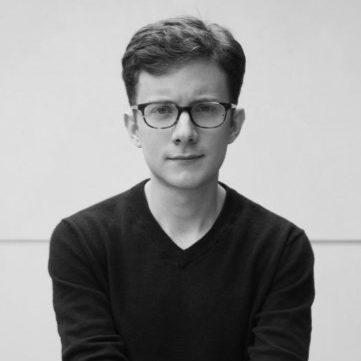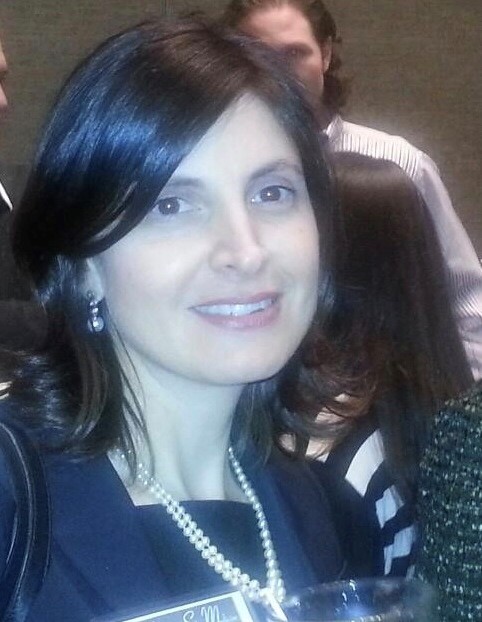Halloween in July
Happy Halloween. . . In October
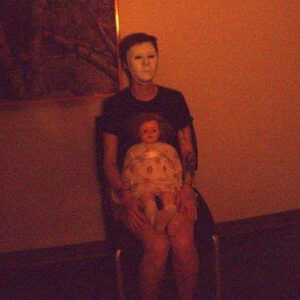 From Kittie Cooper, Director of De(Composers) Forums
From Kittie Cooper, Director of De(Composers) Forums
We asked Young Musicians Program (YMP) faculty member Kittie Cooper to tells us about Halloween in July, a beloved YMP tradition that she introduced six years ago:
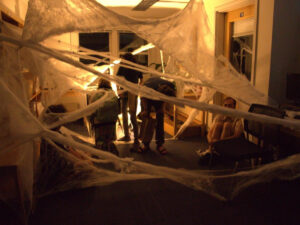
Halloween in July is one of those beautiful days at Walden that bring out peak levels of wackiness in the community. It’s always a surprise when it’ll happen—some space is just decorated on campus for the students to discover. They then have the afternoon to come up with costumes while the offices are converted into a haunted house for students to trick-or-treat in later. The decorating is done secretly, under the cover of some complicated and blatantly fictional story that keeps the students away (this year, spiders had nested up in the offices and needed to be relocated).
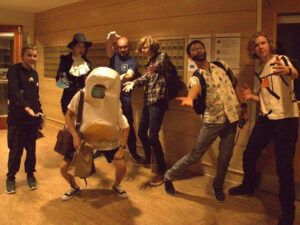
Halloween in July is one of Walden’s more recent traditions—the first one was in 2016 and we’ve had one every year since (even 2020 when Walden was online). Some faculty and staff were talking about how we have winter holidays in July, and we were kidding around that we should have Halloween in July.
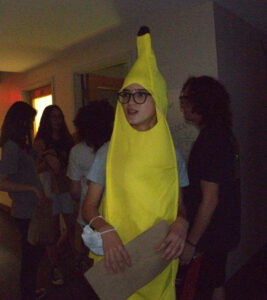 I really wanted it to happen though, because it sounded awesome and very summer-campy, so I kept bringing it up and asking people to help so we could make it happen. I convinced Sam Pluta to suggest Halloween as one of the musicianship frolic themes (which ended up being “Welcome to the Hallolympic Games” or some such), because then I knew we’d at least have some Halloween decorations to start with. People were honestly so trusting that year—I still can’t believe they just let us take over the offices and jumped right in to running around decorating things.
I really wanted it to happen though, because it sounded awesome and very summer-campy, so I kept bringing it up and asking people to help so we could make it happen. I convinced Sam Pluta to suggest Halloween as one of the musicianship frolic themes (which ended up being “Welcome to the Hallolympic Games” or some such), because then I knew we’d at least have some Halloween decorations to start with. People were honestly so trusting that year—I still can’t believe they just let us take over the offices and jumped right in to running around decorating things.
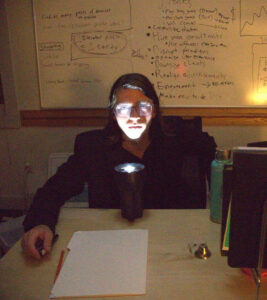 The rooms of the haunted house change every year, and are always a mix of spooky, scary, funny, nerdy, and just plain beautiful. This year two rooms that were on the particularly beautiful side of things were the hidden room of rainbows and unicorns (and other glittery, happy things curated by Rebekah Griffin Greene), and the room of 12-tone solfege bots (where Francesca Hellerman made a Max patch that randomly generated tone rows for the students to solfege). We also had a jump scare hallway with a bunch of DIY synths and lights (thanks to Alex Christie), and a room of planned obsolescence (featuring antiquated Walden merch and technology, dreamed up by Theo Trevisan), and there were many more stand-outs that I’d love to list but then this would be too long! My favorite thing about Halloween is that it’s always a group effort, and you get to see people’s personalities and senses of humor coming out in their own unique ways—just through costumes and decorations. And the Walden students are of course extremely clever, so they come up with some really amazingly original (and spooky, and hilarious) stuff every year.
The rooms of the haunted house change every year, and are always a mix of spooky, scary, funny, nerdy, and just plain beautiful. This year two rooms that were on the particularly beautiful side of things were the hidden room of rainbows and unicorns (and other glittery, happy things curated by Rebekah Griffin Greene), and the room of 12-tone solfege bots (where Francesca Hellerman made a Max patch that randomly generated tone rows for the students to solfege). We also had a jump scare hallway with a bunch of DIY synths and lights (thanks to Alex Christie), and a room of planned obsolescence (featuring antiquated Walden merch and technology, dreamed up by Theo Trevisan), and there were many more stand-outs that I’d love to list but then this would be too long! My favorite thing about Halloween is that it’s always a group effort, and you get to see people’s personalities and senses of humor coming out in their own unique ways—just through costumes and decorations. And the Walden students are of course extremely clever, so they come up with some really amazingly original (and spooky, and hilarious) stuff every year.
eNews: InterNetzo – September 2022
Message from Seth Brenzel, Executive Director
Dear Walden friend,
Walden’s 50th summer has come to a close. It was a joyous one, filled with close mentorship, artistic collaborations, inspired music-making, and creative growth for nearly 100 students ages 9 to 88(!) at our Young Musicians Program (YMP) and Creative Musicians Retreat (CMR). More than 150 original works of music composed by Walden students were premiered on our Concert Series, which was offered free of charge to the public and livestreamed online.
I hope you enjoy this September edition of InterNetzo, which includes a recap of our 2022 YMP, a look at our successful summer fundraising events, a roundup of changes on Walden’s Board of Directors, and lots of community news.
Plus, Friday, September 30 is the last day of Walden’s fiscal year. Please consider making a gift to our Annual Fund today, so that these amazing summer programs can continue to thrive for generations of creative musicians to come. This year’s community of nearly 400 donors (and counting!) made Walden 2022 possible. We simply could not have done what we did this summer without our donors’ loyal and generous contributions. On behalf of the entire Walden community, I am so very grateful.
Best wishes,
Seth Brenzel
Executive Director
(603) 563-8212
Reflecting on the 2022 Young Musicians Program (YMP)
From Seth Brenzel, Executive Director and Director of YMP
What a summer we had! Walden’s Young Musicians Program (YMP) was by many accounts a smashing success. During 2022, 14 teaching faculty, 8 staff, 3 nurses, and 47 students from across the United States, about 50% of whom were themselves alumni of YMP, enjoyed five weeks (or in some cases three weeks) of summer fun, creativity, chorus, musicianship classes, Composers Forums, concerts, and so much more. They composed inventive, exciting music; attended three classes each day (from a schedule of nearly 30 classes); sang in chorus led by our chorus director Kari Francis; created a remarkable musical and artistic community; and made some friends for life. 25 visiting artists presented 24 concerts, composer presentations, open rehearsals, and Composers Forums, during which dozens of exciting new pieces written by our imaginative students were premiered.
We had a lot of fun along the way: five dances, five open mics, one slide show, one fancy dinner on the last night, three mountain hikes (one was cancelled due to heat!), one “heat-out” Saturday excursion to an ice-skating rink, one weekend of bouncy house, one dunk tank (yours truly was dunked by four different students and staff!), one spirited game of Gold Rush, one Halloween-in-July (complete with Haunted House—thank you, Kittie, Alex, and team!), one non-denominational-
It was a summer to remember, for sure. All of our concerts and Composers Forums—for the first time ever—were both livestreamed and open to the public, all free of charge. One parent of a YMP student remarked that Walden 2022 was “as close to a perfect summer for a young creative as one could ask for.” We hope to see you (or your student or cousin or neighbor or child) at Walden 2023(!), for which we are planning in earnest and about which we are already dreaming . . .
Fiscal Year End Fundraising Drive
Walden’s fiscal year ends on September 30—this Friday! That means we have less than a week to reach our Annual Fund goal of $395,000. We are getting close, and we need your help.
Donate Today
Thank you to the nearly 400 individuals and families who have contributed to Walden’s Annual Fund during the current fiscal year. If you haven’t given yet this year, please join us. Every gift counts and makes a tremendous impact on our community.
To have your contribution to Walden’s annual fund included in this fiscal year, make a gift online until 11:59pm PDT on September 30, or mail a check (postmarked by September 30) to our office:
The Walden School
7 Joost Avenue, Suite 204
San Francisco, CA 94131
Summer Fundraising Events
Walden’s loyal community of supporters turned out in force for three wonderful fundraising events this summer.
Giving Day
July 25 was Walden’s third annual online Giving Day. We were overjoyed to share a day at the Young Musicians Program (YMP) by livestreaming snippets of classes, mealtime blessings, a festival piece rehearsal, and interviews with YMP students as well as Composer-in-Residence Amy Beth Kirsten. The day concluded with a livestream of the first Composers Forum of Festival Week. This virtual event raised $9,241 from 58 individuals and families. Thank you to everyone who participated!
The videos produced on Giving Day are still available for viewing here.
New Hampshire Summer Celebration
On July 30, Walden held its first summer fundraiser in New Hampshire since 2019. Approximately 80 attendees, including YMP parents, Creative Musicians Retreat (CMR) alumni, Walden Board members, and New Hampshire community members gathered for a spectacular afternoon of music and refreshments.
First, YMP alumnus Mackenzie Melemed performed a breathtaking piano recital featuring works of Beethoven, Scriabin, and Gottschalk in Dublin’s School’s Louise Shonk Kelly Recital Hall. Then, guests were invited to Windy Knowe, the home of Ellen and Ed Bernard, for a wonderful reception in their newly completed barn. The event raised a total of $12,475 from 34 individuals and families. We are so grateful to Mackenzie, to Ellen and Ed, and to our dedicated host committee for making this such a memorable and successful event.
Seth Brenzel’s 50th Birthday
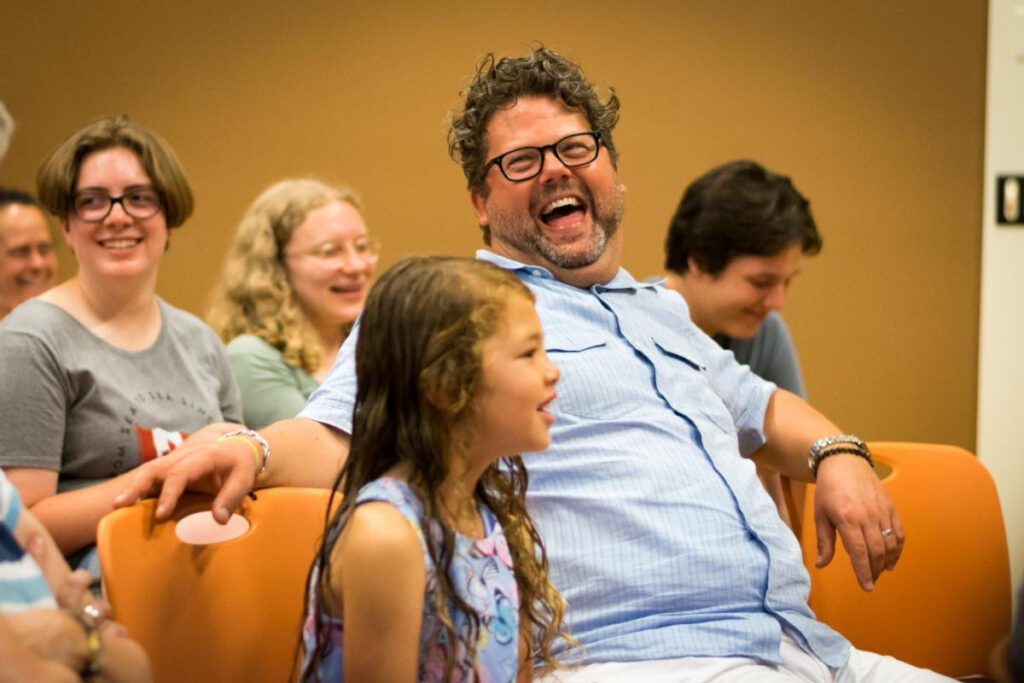
Transitions on Walden’s Board of Directors
In the midst of this summer’s Young Musicians Program (YMP), Walden’s Board of Directors held its first in-person meeting since March 2020, when it last met in person in New York City in the Empire State Building! For two days in July, this group of dedicated volunteers met to work on plans for Walden’s long-term growth and sustainability. Board members also joined the YMP community for a barbecue dinner and a concert by The Walden Schools Players. The weekend was capped off by a celebratory dinner hosted by Charlie and Dede MacVeagh at their home.
As always at the Board’s July meeting, additional directors were welcomed, and new officers were elected. Here is a roundup of the changes:
Board Chair Changes Hands


New Board officers
The officers of Walden’s Board of Directors for 2022–23 are as follows:
Chair: Peter Colohan
Vice-Chairs: Rita Mitra and Danielle Schindler Cheung
Treasurer: Steve Messner
Secretary: David Roberts
New board members
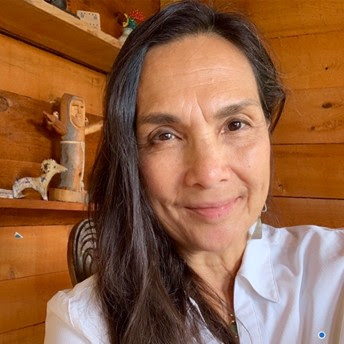
JoAnn is a poet, essayist, and K12 arts-in-education advocate who served as Delaware’s poet laureate from 2008 to 2015. She is a Delaware Division of the Arts teaching artist for Poetry Out Loud, a national high school recitation contest, and teaches poetry and memoir classes for libraries and nonprofits. The recipient of several fellowships and writing recognitions, JoAnn identifies as a next-gen, or 2nd-generation writer whose poems and essays explore cultural memory and loss, family history and parenthood. She lives with her husband Fred Hofstetter and Julian—who has attended both YMP and CMR—in Newark, Delaware, on Leni Lenape tribal homeland. Watching a Composers Forum for the first time in the summer of 2016, JoAnn Balingit was moved and delighted by the confidence, creativity, and sense of belonging everyone radiates at Walden.

Jamie is passionate about creating communities that thrive in the life of service, generosity, listening, and learning. For twenty years, she was both an educator and administrator at Phillips Exeter Academy in New Hampshire, teaching religion and philosophy and overseeing the health and welfare of students in her role as dean. Jamie is a past Rector of All Saints Church in Peterborough, New Hampshire, and of Emmanuel Episcopal Church, a summer congregation located next to the Dublin School campus. Jamie is returning to the Walden Board after having served from 2013 to 2016. She lives in Jaffrey, New Hampshire.
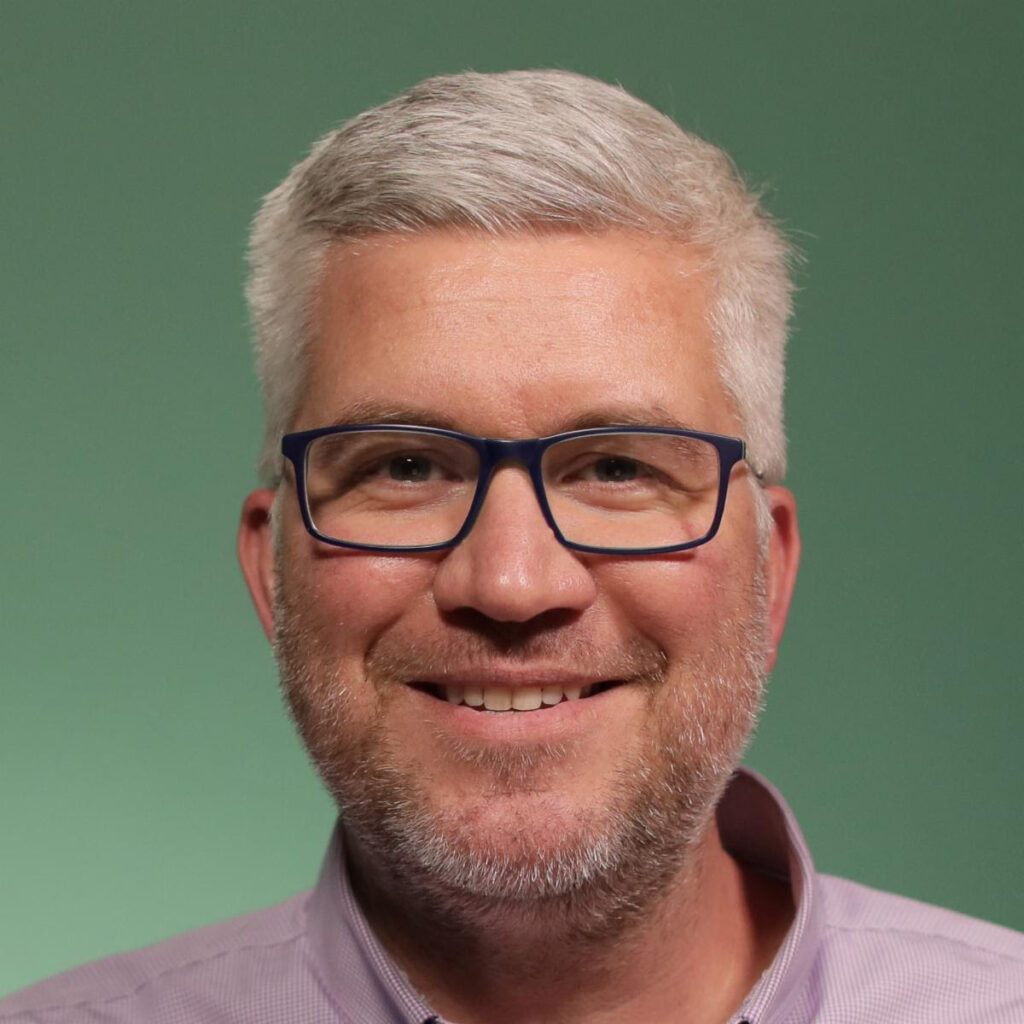
David Keller, CMT, is Chief Market Strategist at StockCharts.com and President of Sierra Alpha Research LLC, where he helps investors make better decisions using behavioral finance and technical analysis. He is the host of The Final Bar, the daily closing bell show on StockCharts TV, and he relates mindfulness techniques to investor decision making in his blog, The Mindful Investor. David is a classically trained musician and student pilot, and resides in Duvall, Washington, with his wife and two children. David’s perpetual pursuit of musical experiences led him to CMR in 2018, and he has literally not stopped thinking about it ever since.

Through her career in arts administration, Kate has worked for the Grand Teton Music Festival in Jackson Hole, Wyoming, the New Jersey Symphony Orchestra, and the Chamber Music Society of Lincoln Center, where she served as Associate Director of Development. She now lives in Hoboken, New Jersey, with her husband and daughter. Kate serves as a trustee of the Hoboken Historical Museum and as board chair of the Fund for a Better Waterfront in Hoboken. Kate is honored that Walden has given her the opportunity to be directly involved in the non-profit arts sector again, and to support transformative experiences for young people through music and composition.
Ellen Bernard becomes Director Emerita
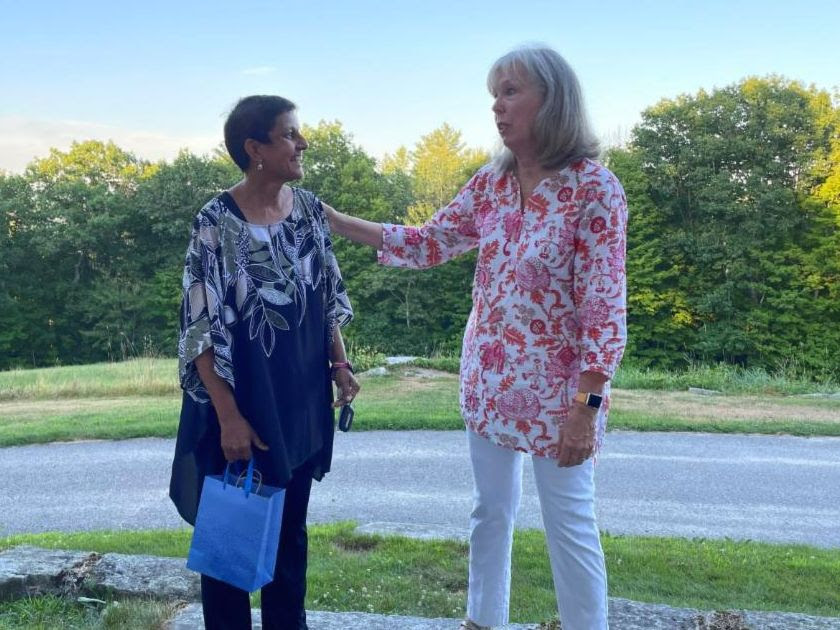
Photo: Rita Mitra (left) and Ellen Bernard at the Board dinner in July.
Ryan Muncy in Memoriam
From Executive Director Seth Brenzel
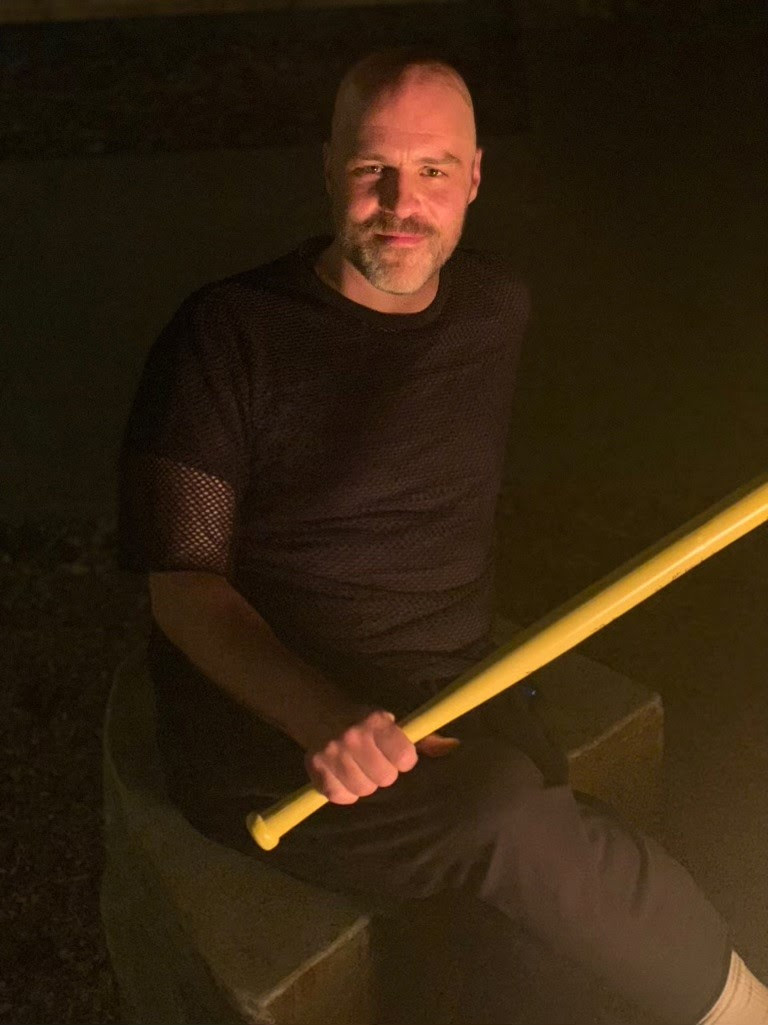
Ryan first came to Walden as part of Dal Niente in 2013. With Dal Niente, the International Contemporary Ensemble, and The Walden School Players, he was in residence at Walden eight different times. Some people who come to Walden are immediately part of the fabric of the place, and you start to imagine that they literally are Walden, have always been part of Walden, and will always be. Ryan was one such person. He will always be part of Walden, and I’m so grateful to have known him and for all that he gave to me, this community, and our students. Ryan is and will be forever missed.
As a testament to how deeply Ryan touched so many of us at Walden, we share a reflection from Theo Trevisan, a Young Musicians Program (YMP) and Creative Musicians Retreat (CMR) alumnus and staff member, who explains the significance of the yellow bat Ryan is holding in the photo above, captured by Composer-in-Residence Marcos Balter around the firepit during CMR 2021:
Back in summer 2014, Ryan was one of The Walden School Players, and Zünder Jones (who had already done several hilarious pranks that summer) had an idea for one more small prank during YMP Festival Week. He decided arbitrarily to create the “Ryan Muncy Fan Club” and gather a bunch of us to prank Ryan by mobbing him at the breakfast line as his fan club (as if we were paparazzi). Funnily enough, the prank primarily consisted of us flash mobbing Ryan at breakfast, and signing the wiffleball bat was only a small part of the idea. Ryan was an extremely good sport about it (especially considering he hadn’t had any coffee yet!), and even though he was confused at what was happening, he signed the bat.
The next summer in 2015, Ryan was back as both a Walden School Player and a member of the International Contemporary Ensemble. I remember checking the rec room for some reason and finding the signed bat among the rest of the wiffleball bats, and I thought it would be hilarious to have him sign the bat again. At the end of that summer, he signed the bat and dated the signature to 2015, and thus a tradition was born. Every subsequent year, Ryan would sign the bat while he was at Walden, and after my last summer as a student in 2017, Sasha Paris-Carter took over as the “Chair” of the Ryan Muncy Fan Club. I believe he signed it every year from 2014 all the way until 2021, when he was in residence at the Creative Musicians Retreat while I was a participant.
Ryan’s graceful response to a bizarre prank, and its subsequent transformation into a Walden tradition, showed Ryan’s extraordinary kindness and good humor. I wrote for Ryan at every opportunity I could after that (four times between 2015 and 2021, more than I wrote for anyone else at Walden) because of his warmth and generosity as well as his amazing musicianship. He was a role model for how the collaborative process should work and how that can tie into communities like Walden, and I strive to approach all of my collaborative endeavors with the professionalism, generosity, and humor that Ryan exemplified. He helped make so many Walden students’ summers excellent and fun.
Community News
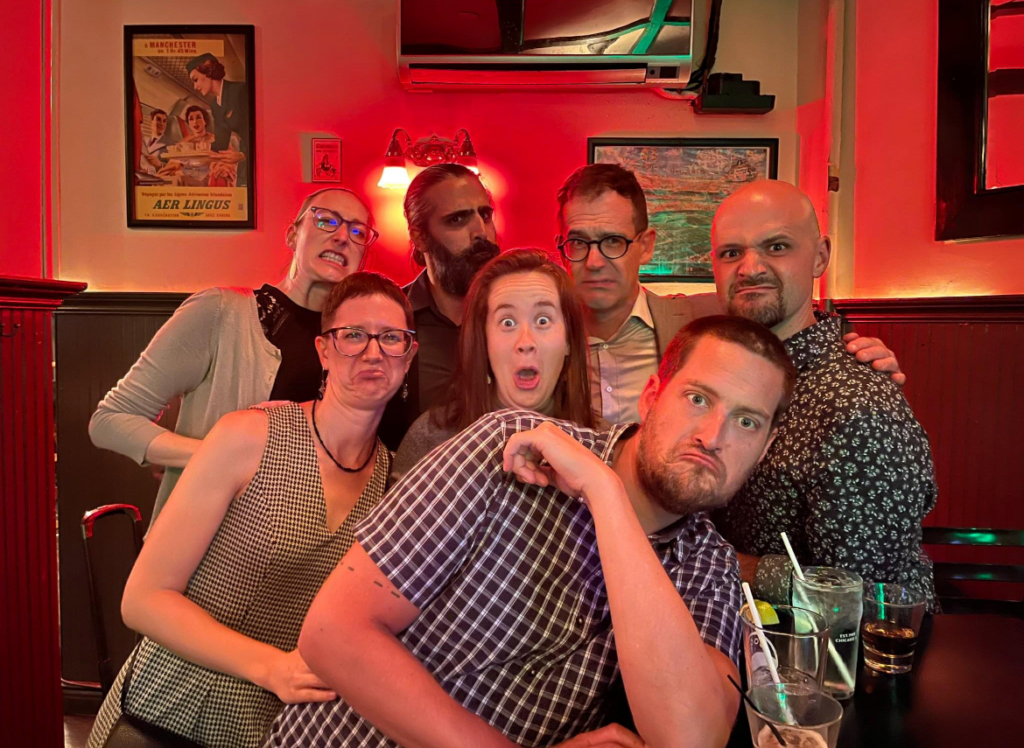
In August, several Walden-affiliated performers and composers were featured at this year’s TIME:SPANS contemporary music festival at the DiMenna Center for Classical Music in New York. Among them: past YMP and current CMR faculty member Sam Pluta’s piece Atens was premiered by Splinter Reeds (an ensemble that includes bassoonist Dana Jessen, a past YMP faculty member and current Walden School Player.) Splinter Reeds, itself a past Walden visiting ensemble, also performed past YMP faculty member Sky Macklay’s piece Choppy, featured on Splinter Reeds’ album Hypothetical Island. Another piece by Sky Macklay, Microvariations, was performed by the Argento New Music Project. Dana Jessen also performed Seismologics, a piece for bassoon and electronics that was written for her by past YMP and CMR Composer-in-Residence George Lewis. Other premieres included phrēn, by past visiting artist and Walden School Player Eric Wubbels, performed by JACK Quartet, and drip music, by past YMP faculty member Katie Balch, performed by Talea Ensemble.
Photo: Sky Macklay and Sam Pluta with the members of Splinter Reeds.
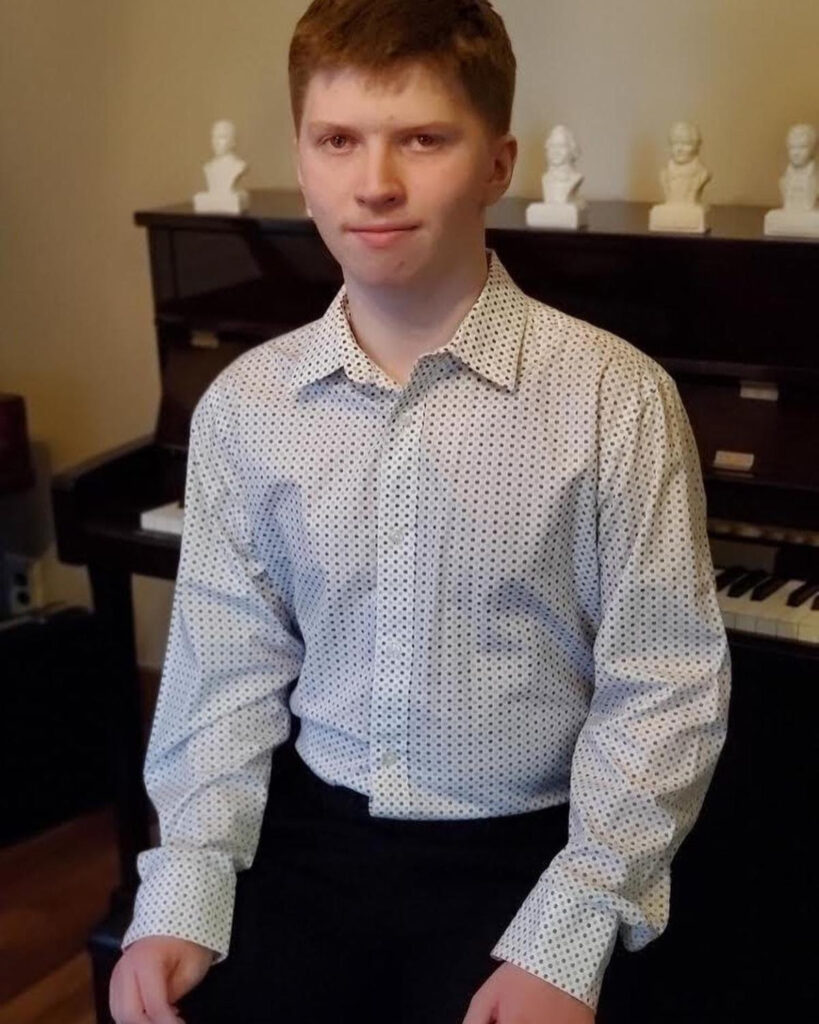
Constantine Darie, a 2022 YMP student and sophomore at Potsdam Central School in New York, has won two prizes from the New York State School Music Association (NYSSMA): one for the Young Composers Honors Concert and another for the Electronic Music Composition Showcase. His compositions Waves and Other Side will be performed at the NYSSMA Winter conference in Rochester, New York, December 1 through 3. An article about the composition of Waves can be found here. Congratulations, Constantine!

YMP faculty member Lila Meretzky was one of two composers chosen for the inaugural Creator Mentorship Program by Sandbox Percussion. Over the next year, the ensemble will commission a piece from each of these two creators and will bring them to New York City to rehearse, workshop, perform, and record these pieces. Congratulations, Lila!

In honor of Hispanic Heritage Month, the one-act opera Tres Minutos, by TTI and CMR alum Nicolas Benavides, is available for viewing in a high-quality video stream until October 15. Also, congratulations to Nick on successfully defending his dissertation to complete his Doctor of Musical Arts degree at USC Thornton School of Music!
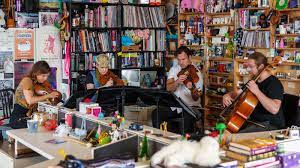
Former CMR ensemble-in-residence Mivos Quartet was featured on NPR’s Tiny Desk Concert series, playing works by Robert Honstein and Henry Threadgill. The ensemble is also holding its twelfth Mivos/Kanter String Quartet Commission Prize designed to promote preexisting works of talented emerging composers residing in the United States. The application deadline is October 15.
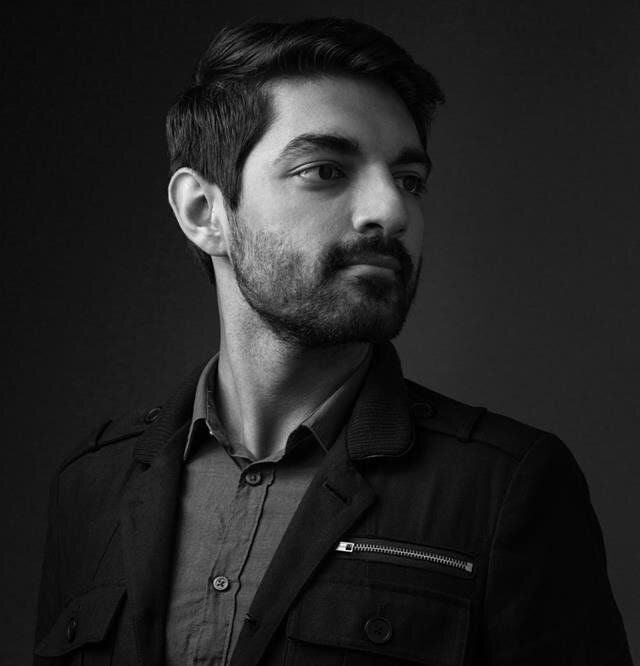
CMR alumnus Anuj Bhutani won the ASCAP Morton Gould Young Composer Award for his piece On Letting Go for cello and electronics. A recording and score are available here. A short video of Anuj speaking about the piece is here. Congratulations, Anuj!
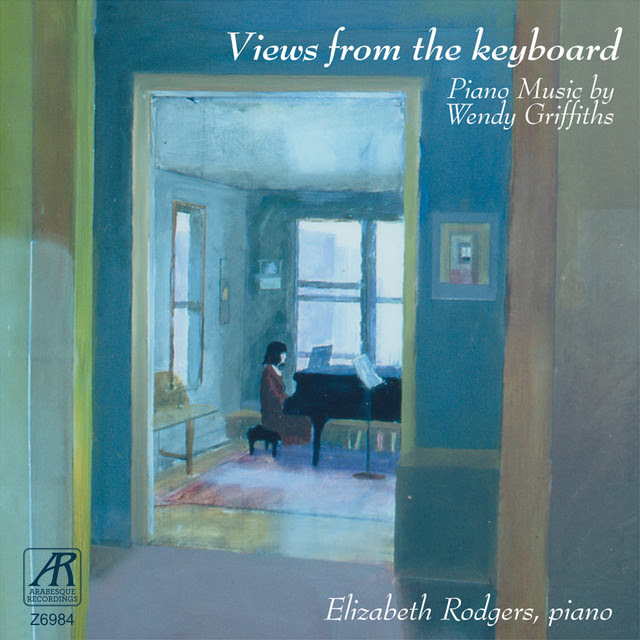
An album of piano works by CMR alumna Wendy Griffiths is available now on all streaming platforms, including Spotify and Apple Music. Featuring pianist Elizabeth Rodgers, the album is entitled Views from the Keyboard.
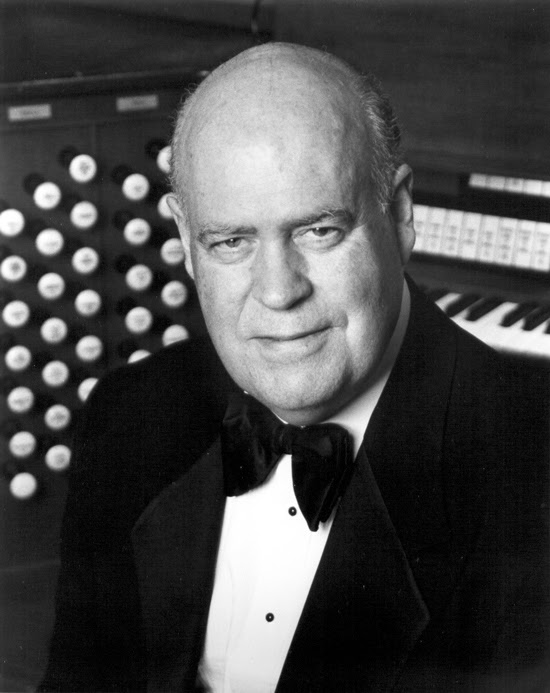
An organ concert celebrating the late John Weaver, a JCC alumnus and faculty member, was performed on the Kotzschmar Memorial Organ in the Merrill Auditorium in Portland, Maine, where John concertized annually for half a century. The concert was performed in August by Richard Elliott, one of John’s students and now principal organist of the Tabernacle Choir at Temple Square in Salt Lake City, and it featured two of John’s compositions. He has included two of John’s own compositions. A recording of the concert is available for purchase here, and today is the last day to view it.
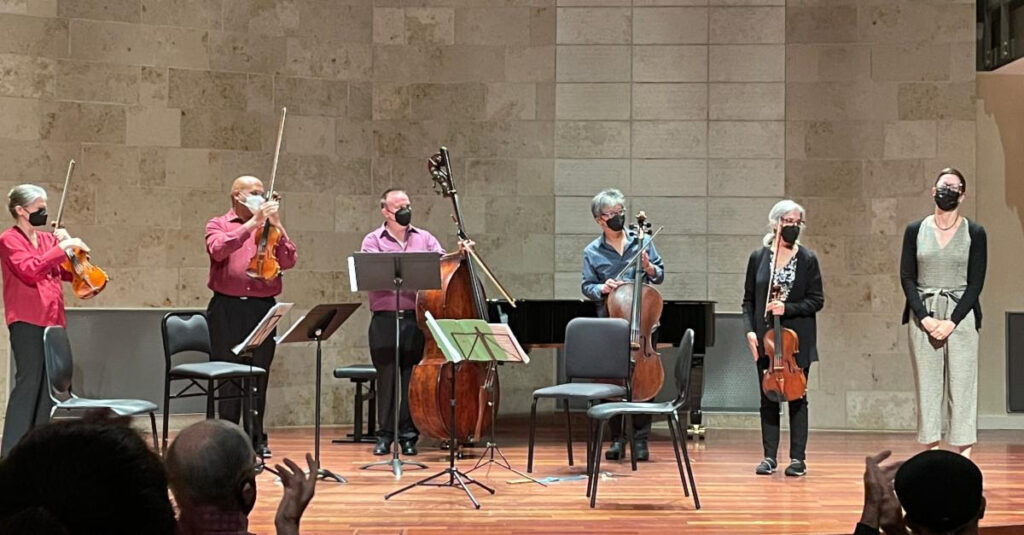
Past YMP faculty member Sky Macklay’s Canon Cadenza Cadence Cluster, was premiered by the Left Coast Chamber Ensemble in Berkeley and San Francisco on September 18 and 19. The commission was made possible by the Chamber Music America Classical Commissioning Program with funding from the Andrew W. Mellon Foundation. The piece features the double bass.
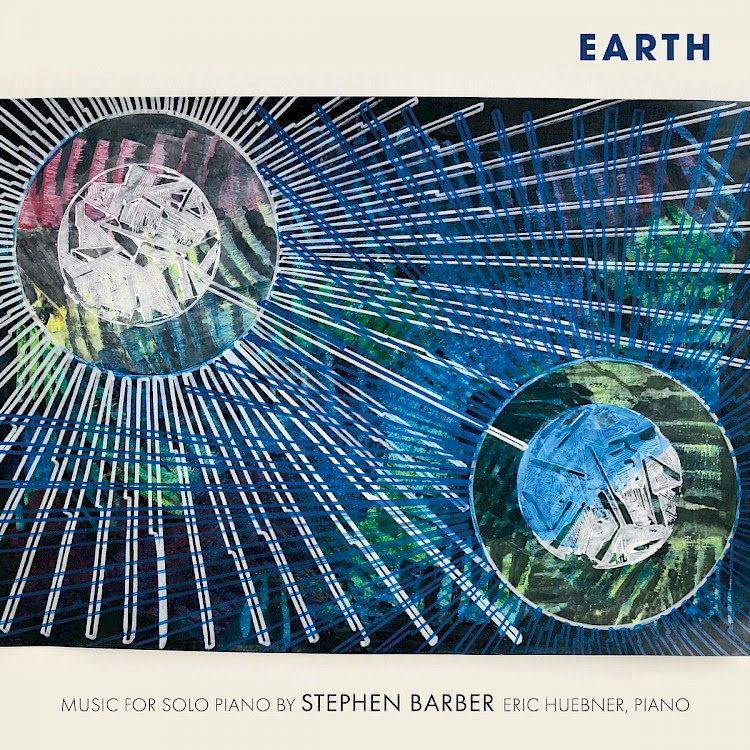
New Focus Recordings has released Earth: Music for Solo Piano by Stephen Barber, featuring former YMP visiting artist Eric Huebner. Eric is pianist of the New York Philharmonic and a professor of music at the State University of New York at Buffalo.

CMR alumnus Zach Layton, a guitarist, composer, curator, teacher, and visual artist based in New York, has been awarded a residency at MacDowell, the storied artist residency program in Peterborough, New Hampshire, just down the road from Walden’s summer home at the Dublin School!
We want to hear from you!
What’s been going on? If you have a recent or upcoming premiere, publication, award, new job or program, or a celebratory life event, please share the news at waldenschool.org/contact.
Stay in Touch
You can like The Walden School page on Facebook and join The Walden School private group to hear about events and opportunities throughout the year. You can also find us on Instagram, Twitter, YouTube, bandcamp, and at waldenschool.org.
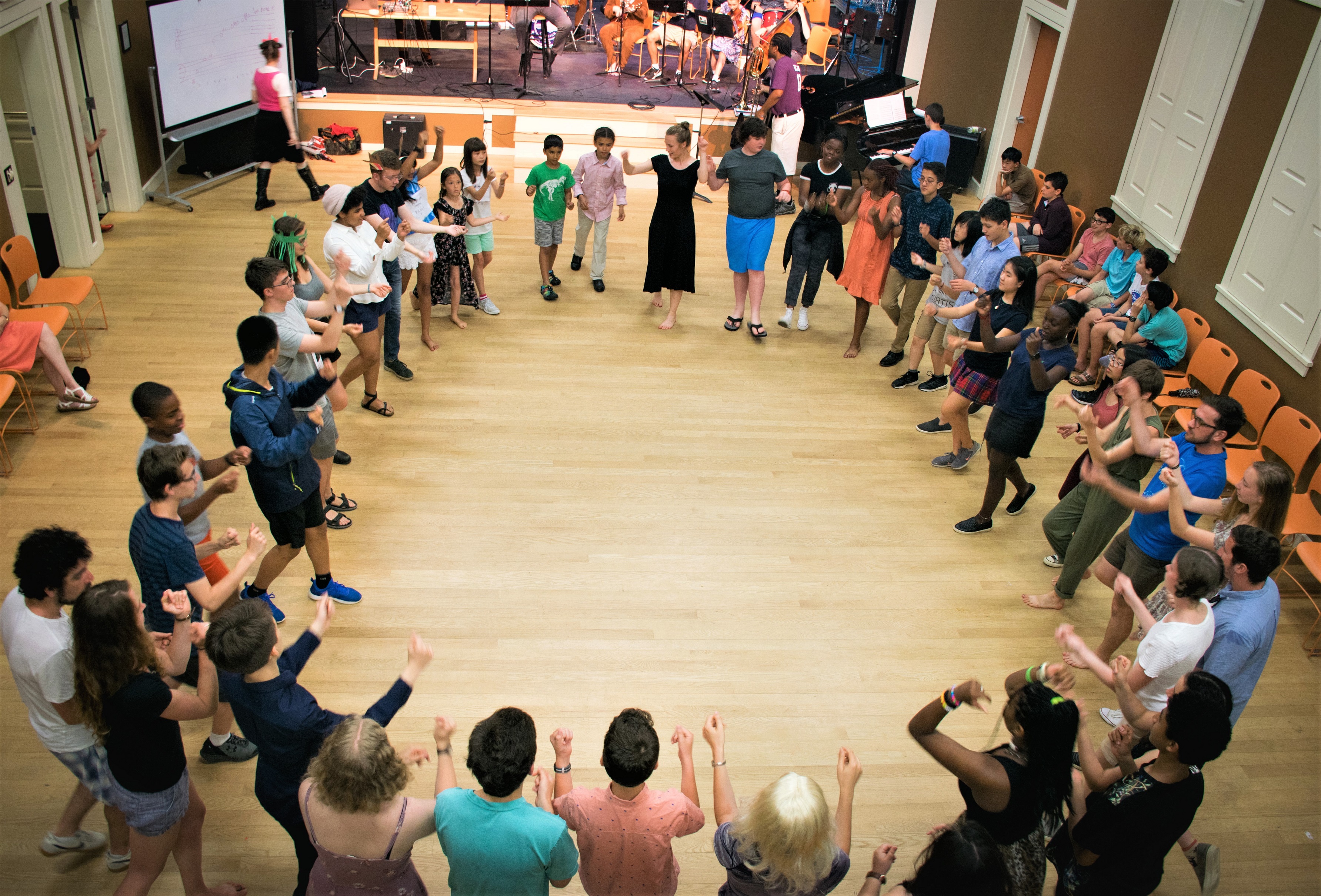
In the Spotlight: Bob Weaver
In the Spotlight
Bob Weaver
Bob Weaver is an alumnus of the Junior Conservatory Camp (JCC), the predecessor program to The Walden School, and has been a participant at Walden’s Creative Musicians Retreat (CMR). Bob and his wife Anne, a fellow JCCer who is a physician as well as an accomplished musician and choral director, are longtime Walden donors and active members of the JCC/Walden alumni community. Bob is Professor Emeritus of Mathematics and Computer Science at Mount Holyoke College. He is a published composer, particularly of hymns and anthems, and an avid choral singer. Bob and Anne live in a retirement community in Needham, Massachusetts.
Bob began attending JCC in 1956. Anne started in 1962, which is when they first met.
How did you first get involved with the Junior Conservatory Camp, and what has been your involvement with JCC and Walden since?
My brother John, a concert organist, composer, and teacher, started as a teenager at the JCC in about 1952. My family and I, from Baltimore, visited camp at Manor Vail in Lyndon Center, Vermont, for a couple of days in summer 1955, and I knew right away that I wanted to be a part of this friendly and supportive community and to study with Mrs. Grace Cushman. So I started there the following summer and continued coming to camp for eight years—right through college. I was on the dishwashing crew and later served as boys’ counselor. Many will remember that the dish crew filled the kitchen with wonderful vocal harmonies and resolving seventh chords while we scraped and loaded the dishwasher.
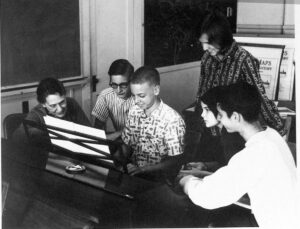
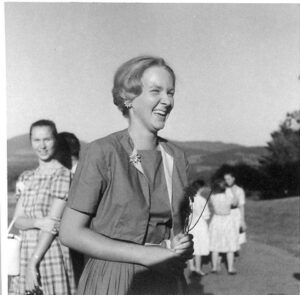
For my last two summers at camp, Anne Conley attended, and we were married when she graduated from Wellesley College in 1967. Later, when we were living in western Massachusetts, we saw an article in our local newspaper, the Greenfield Recorder, announcing a concert to be given by JCCer Nansi Carroll at The Walden School. Not wanting to miss that, we made our first trek up to Dublin, New Hampshire. We were immediately impressed that the warmth and supportive atmosphere that we had known at JCC, years earlier, was most palpably present at Walden in a way that brought back vivid memories of our camp experience. We have since attended all of the JCC/Walden reunions at the Dublin School, and some of the Composers Forums, and we have taken part in fundraising and committee work for the school. Several years ago, I attended the Creative Musicians Retreat (CMR), a week full of inspiring musical events and superb faculty and fellow attendees.
Many JCC folks will remember singing the hymn tunes that I wrote while at camp (“Dear Lord and Father” and “Lord, Thy Glory Fills the Heavens”). Over the years, and especially since I retired from teaching at Mount Holyoke College, I have continued composing and have written a number of other hymn tunes, setting some beautiful texts by my friend, William Pasch, of Atlanta. Together, Bill and I have expanded these tunes into choral anthems and have published with Augsburg Fortress Publishers and the St. James Music Press.
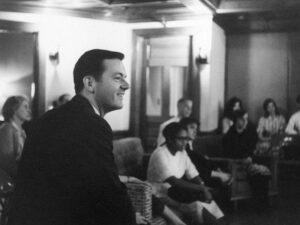
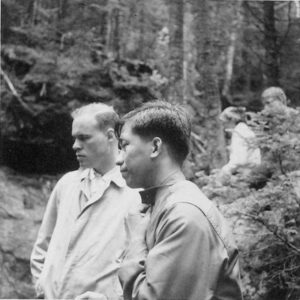
I understand you have a video of JCC that you’d like to share with us. How did the video come together, and what does it show?
In 2007, we attended the JCC/Walden reunion in Dublin. Dr. Ron Nelson, who had been a JCC faculty member and composer-in-residence for a number of years, was unable to be there but made a video to share. It was a silent video with footage from JCC that Ron had taken in 1960. Last spring, I rediscovered the video and worked with Ron to edit it and add some of Ron’s original compositions in the background. You can watch the video here. Ron is now living in Arizona in retirement from the music department of Brown University.
Why do you give to Walden? Do you have any hopes for Walden’s future as we embark on its 50th summer?
Anne and I know how profoundly the Junior Conservatory and Walden have affected and enriched our lives. We contribute to the school in the knowledge that the Walden experience (in both of its forms, YMP and CMR) can have the same positive effect on others who want to learn and compose and share interests. This is a precious program that must be preserved and extended into the future. I urge everyone to give generously to Walden.
Do you have any stories of Walden/JCC connections that you have made and maintained over the years?
So many of the people whom we knew in our summers at JCC have remained our valued friends to this day. We hear of their musical accomplishments, we remain close through email, Zoom, letters, and visits in person. We were so pleased when Walden arranged for a Zoom gathering of JCC alums this past year. That was a real treat that got many of us together for a wonderful virtual sharing of memories.
And here is a “small world” anecdote. At the 2018 Walden reunion at the Dublin School, Anne and I were chatting with a group and mentioned that we are living at the North Hill Retirement Community in Needham, near Boston. Former JCCer Tom Terwilliger said that his mother had lived at North Hill. At that moment, Solon Snider, who was himself a Young Musicians Program alumnus and attending the reunion, overheard us and interjected: “North Hill—my grandparents live there.” It turned out that his grandparents, Stanley (now deceased) and Mary Ann Snider, were fellow residents whom we knew and had visited with over dinner.
Not long ago, I happened to meet a gentleman, Jim Snider, who was reading in one of the lounges at North Hill, and we struck up a conversation. He said that he has a son, Solon, who is very much into music. I immediately recognized that name and said, “I’ve met your son!” He looked puzzled until I said it was at the Walden School! And yes, Jim knew all about Walden and its wonderful programs.
We all have heard that your brother John and his wife Marianne both passed away in 2021. They had a profound effect on the sacred musical scene in this country, and both are remembered for their many years at JCC.
Yes, John graduated from the Curtis Institute and remained a fixture at JCC as a faculty member and as Assistant Director of the camp, except for the years when he was drafted into the Army. For his Army service, he was named the organist and choir director of the Post Chapel at the U.S. Military Academy at West Point. Later, when John’s teacher, Alexander McCurdy, retired from Curtis, John was recruited to replace him in the Organ Department there. Also the organist of the Madison Avenue Presbyterian Church in New York City, he happily commuted to and from Philadelphia by train—his favorite form of transportation. Some years later, the Juilliard School asked him to chair their organ department, which he did while continuing at Curtis for many years until his retirement in 2005.
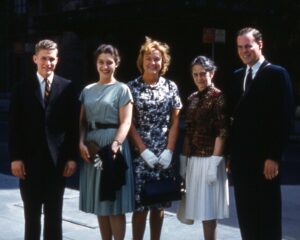
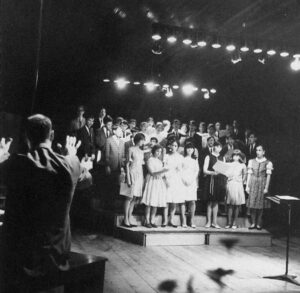
Marianne was a wonderful flutist who performed frequently with John, including at JCC where she was on the staff for many years. She helped lead the music ministry at Madison Avenue, including directing the Junior Choir, and earlier, she and John established the Bach cantata series at Holy Trinity Lutheran Church in New York. John and Marianne spent their summer months at a house that they built in their beloved northern Vermont, not far from Lyndonville, and they eventually retired there.
For more details about John and Marianne, and about my own music, check out my website. There is a link on that site to the JCC/Walden connection. There is also a page that I’ve developed describing John’s career, including videos of John and Marianne in concert in New York and a wonderful 90-minute Public Radio interview (“Pipedreams”) from 2007 in honor of John’s 70th birthday. My contact information is also there, and I’m always happy to hear from people in the JCC and Walden communities.
In the Spotlight: Sam Pluta & Sky Macklay
In the Spotlight
Sam Pluta and Sky Macklay
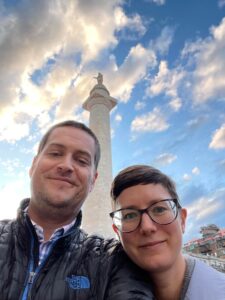
Sky Macklay is a composer, oboist, and installation artist who was on faculty at Walden for nine summers. Her music is conceptual yet expressive, exploring extreme contrasts, surreal tonality, audible processes, humor, and the physicality of sound. As a 2021 Guggenheim Fellow, her next project is a chamber music album that will synthesize her work as a composer and her raucous, multiphonic-rich oboe performance practice. She is a founding member of the New York-based Ghost Ensemble. Macklay completed her DMA in composition at Columbia University.
In the last year, Sky and Sam have taken up teaching positions at the Peabody Institute of Johns Hopkins University in Baltimore, continuing a long and deep association between Peabody, The Walden School, and the Junior Conservatory Camp (JCC), Walden’s predecessor program. JCC founder Grace Newsom Cushman, along with Walden co-founders Pam Quist, David Hogan, and Lynn Taylor Hebden, each enjoyed a long association with Peabody, and hundreds of Walden and JCC alumni first learned of JCC and Walden while studying music at the Peabody Prep. For many decades, there was a bus that left Peabody early in the morning on the last Saturday of June, filled with eager campers bound for New England to kick off each amazing summer of Walden (and perhaps JCC, too?).
How and when did your relationship with Walden begin, and what has been your involvement since then?
Sam: My relationship with Walden started in 2001 when I was on staff just after finishing college. In 2002, I was hybrid staff and faculty, and then from 2004 to 2016 I was on faculty at YMP. I was also Director of Computer Music at YMP from 2008 to 2016, and Academic Dean for at least 5 years until 2016. I was one of the founding faculty members of the Creative Musicians Retreat (CMR) in 2012, and on faculty at CMR for five years. When I was teaching at the University of Chicago, the quarter system made it impossible for me to do CMR, but now I’ll be back teaching at CMR this summer.
Sky: My relationship with Walden began in 2009 when I attended the Teacher Training Institute (TTI), and I absolutely loved it! I applied to be on faculty at Walden’s Young Musicians Program (YMP) the next year and got the job, and I was a faculty member at YMP from 2010 to 2018. I have also been on staff and a participant at CMR. I haven’t been on faculty for a few years now, but it’s my dream to teach at Walden again in the future.
Could you describe a favorite memory from your time at Walden?
Sky: One of my favorite parts of Walden is open mic night. I would host open mic nights a lot, and it was just such a wonderful time for everyone to share their creativity. One open mic night coincided with Christmas in July, and a YMP student named Evan Johnson [a 2022 YMP staff member] was my Secret Santa. For my present he gave me a really beautiful song that he wrote about me and Sam, so Sam and I danced to it at the open mic, but Sam was wearing Santa makeup, and the Santa makeup got all over my face while we were dancing!
Sam: Alex Christie [current YMP and CMR faculty and leadership team] wrote the Mountain Song almost 20 years ago, and the students still sing it whenever they hike Mt. Monadnock. It’s amazing to see a student get up to present something and you don’t know what it’s going to be, and then it’s something amazing that becomes part of the fabric of Walden, which will be passed down by generations of students.
Could you share some highlights from composing or performing in the last year?
Sky: I had a string quartet premiered by Kronos Quartet as part of the Bang on a Can Loud Weekend at Mass MoCA. I also made a new harmonica installation called Harmonitrees at Stetson University, and now I’ve integrated two of the trees into a new piece of chamber music called Harmonifriends with Ghost Ensemble, which was recently premiered at Uptown Underground in New York.
Sam: This weekend the double-bar bandit arrived and put the double bars on my piece for orchestra and electronics, called Seeker, for the Warsaw Autumn International Festival of Contemporary Music in September.
What are your current positions at Peabody?
Sam: I’m an associate Professor of Computer Music. At Peabody, composition and computer music are separate departments, but they’re both departments for composition, just with a different focus.
Sky: I’m a Lecturer in Composition. I mostly teach composition, and in the fall I’ll also be teaching a class called Composers of the AACM (Association of for the Advancement of Creative Musicians), which I’m really excited about. I’m also the composition coordinator for the low-residency master’s program, which is a new format that offers more flexibility for composers who may not be able to relocate for a master’s degree. It’s an intense summer experience, followed by two semesters of online classes, and then another intense summer experience. My Walden skills are especially helpful in creating an amazing summer festival experience and fostering a musical community in a short period of time.
How has Walden pedagogy informed your university teaching?
Sam: Part of the job in teaching is creating a community, creating situations where students get together to make music and teach each other. There’s nothing better than teaching for 16 years at Walden to make you understand how to foster community.
Sky: I take that same attitude from Walden, where composers forums provide a model for respectful dialogue involving composers and performers. I use creative musicianship and “Discover, Drill, Create” all the time in my composition lessons. If a student is stuck, I try to find a piece where we can discover something related to what they’re working on and create a drill based on it, which can help students get through creativity blocks and get the notes flowing.
Are there any reflections you could share on the Walden legacy at Peabody?
Sky: At Peabody, we are traversing the same halls as [JCC founder] Grace Cushman and a lot of Walden people including Steve Coxe, Leo Wanenchak, and Pam Quist. I recently came across an old Peabody newsletter that mentions a Walden alumna named Laura Kolker. It says she was a Peabody Prep student who won a BMI award and went to Walden four times, where she studied with Pam Quist, John Yankee, and Paul Nauert.
Sam: Pam Quist was the first person to teach electronic music at Walden, using tape-splicing equipment in the 1970s and ’80s. Pam learned that from Jean Eichelberger Ivey, who started electronic music at Peabody more than 50 years ago. So for me to bring my Walden pedagogy back to Peabody in the form of Walden’s Computer Musicianship course, which is the basis of all my electronic music teaching, that’s a pretty awesome circle!
Sky: For my Composers of the AACM class, I was researching the Schillinger method of composition, because one of the AACM composers, Muhal Richard Abrams, was a Schillinger practitioner. I believe the Schillinger method was an inspiration for some Walden and JCC teachers, including Grace Cushman. Joseph Schillinger was a composer who created a system involving algorithmic ways of generating rhythms and pitches. There’s a major Schillinger archive at Peabody, and the librarian who organized it was Ned Quist, who performed at Walden as part of Cross Country and wrote a beloved arrangement of “To My Old Brown Earth.”
In the Spotlight: Amy Catlin-Jairazbhoy
In the Spotlight
Amy Catlin-Jairazbhoy
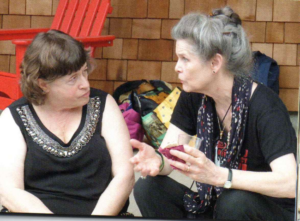
Amy is a Junior Conservatory Camp (JCC) alumna with deep ties to Grace Cushman and her teachings. She is also a donor to Walden who carries herself with a lively and passionate spirit that shines through her research, teaching, music, and everything she does.
Learn more about her work at Apsara Media, and read her full biography on UCLA’s website.
How and when did your relationship with the Junior Conservatory Camp (JCC) begin?
My piano teacher in Montgomery County would take me with her every Saturday to Peabody Preparatory; we would take Musicianship classes with Grace Cushman together. Within two years I was teaching my piano teachers’ students musicianship as well.
This naturally led to attending the Junior Conservatory Camp for two years, then coming three more years as a faculty member.
In my last two years of high school I studied Bharatanatyam classical dance of South India with Georgia Cushman (one of Grace Cushman’s two daughters) in Baltimore. She had just come back from Madras, India (which is Chennai today), where she had studied at Kalakshetra. I was a devoted student, but it’s very difficult when you start at 16 years old! That Indian connection was one reason I went to India as a graduate student. I chose college instead of staying at the Conservatory, because I wanted to know more about the rest of the world, especially during the Vietnam War years.
Could you describe a favorite memory from your time at JCC?
I have an aversion to favorites . . . it seems that you are ranking things. I have many favorite memories. The composer forums were stupendous. The performances were breathtaking. To have my own compositions performed—a Robert Frost poem that I set for piano and violin, performed by soprano Shari Fleming. It was the second time I heard my own composition performed.
Also, singing in some of Humphrey Evans’ compositions. He was a great inspiration and in my cohort of students. He was a close friend until his last days. He was a genius and iconoclastic, funny, witty. We used to play ping pong together at camp!
What is something from JCC that you have carried with you?
How to improvise with the material you’re learning in musicianship. How to make creative use of the knowledge that you acquire was the main teaching that Grace taught all of us. To use what you’ve learned: if you’re just learning facts, you’re not making use of it, and you’re not using it creatively. That’s what I’ve done with my scholarship also. I try to use it in creative ways, applying music research to address community problems, both in India among underserved communities and here (in the US) with refugees from Southeast Asia: Hmong tribal refugees from Laos and Khmer refugees from the killing fields of Cambodia.
It’s so deep. It’s so fundamental, the methods that Grace used—not to mention her enthusiasm and her passion!
Mrs. Cushman taught me how to plan a lesson and how to evaluate a lesson after you’ve taught it. She was very aware of each student’s needs, backgrounds, disabilities, insecurities. I still do that—I plan my lectures; I write out every word when I teach now, and afterwards review every line of what I did and what I added. I keep in touch with as many students as I can; it’s been born into me because of Grace.
How are music and/or creativity part of your life now?
I’ve been teaching one course at UCLA for the past 10 years. It’s not about classical folk music of India, not about music of the sacred (all topics I taught with my applied work in ethnomusicology); it is called “Music of Bollywood and Beyond.” It covers 100 years: from silent films to the present. This history of cinema and music relates deeply to the history and the people of India. I tell my students, most of whom are of Indian heritage, that “you can talk to your grandparents about this.” They come back and say they’ve had the best conversations with their grandparents and parents . . . it bridges the generational gap. Suddenly you have something to share that you both love.
I teach in an applied sort of way. I design the courses myself, and the students are the subjects. We have some great discussions about how films composed 50 years ago might relate to today, about whether they were created before or after independence. It gives it a historical foundation to talk about the films, and the music, and the influence of Western music and jazz.
I also still play the piano. I like to improvise in an Indo-Jazz fusion style which I do sometimes with a partner who plays the saxophone. I’ve taught him how to improvise in different Ragas (singular Indian Raga), especially one raga that my husband called a “hypothetical” raga because it never occurred, but it should have. It uses the pentatonic (all black keys) with C (tonic) and G (dominant).
What is a non-musical hobby that’s part of your life?
Ping pong! It’s a great game for musicians. We have an outdoor ping pong “stadium” in our home. It’s very good for hand-eye coordination. It’s the fastest game there is, good for mental & physical agility. Great for elders, as the sudden movements are good for preventing Alzheimer’s.
I also love to dance: couple dancing, or ballroom dancing and Middle Eastern dance. Coordinating with the music is so important—and so good for the brain. I also exercise at the gym on the elliptical trainer while watching the news. I watch Indian news every day on three different channels.
Why do you give to Walden?
Transformation.
When I went to the Peabody, I was teaching there in my Junior and Senior years of high school. In fact, I had left home.
She [Grace Cushman] made it possible for me to leave by getting me this job as a live-in cook and babysitter for the six children of the Rector of St. Paul’s cathedral. So, I could afford to leave Chicago where my parents had moved, which I hated! I was able stay on in Baltimore after camp.
See what a difference this made in my life? It made me independent from the time I was 16 . . . I didn’t see my parents for two years. I’m telling you: she transformed my life. I owe my life to her. So, when you ask why do I give to Walden? That’s why. The transformation of my life.
What hope do you have for Walden’s future?
I would love to see a connection with NPR’s “From the Top,” and to see more international scope, incorporating music from different cultures!
In the Spotlight: David Roberts
In the Spotlight
David Roberts
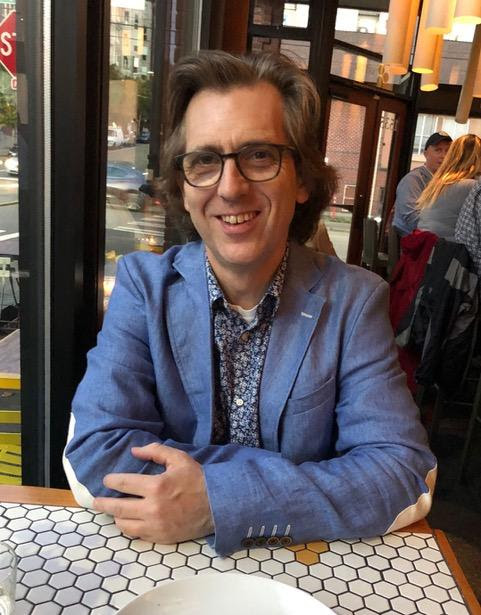
David Roberts is the parent of YMP alumnus Marco Roberts, and a member of Walden’s Board of Directors. Before moving his family to the Seattle area in 2016, David lived and worked in China for 20 years, most recently as a partner in the Beijing office of O’Melveny & Myers where he practiced corporate and securities law. For a brief period, the four-piece Roberts Family Band rocked the Beijing elementary school and office party circuit with an eclectic mix of Beatles, Cui Jian, and Soundgarden covers until breaking up over creative differences. Having retired from his law career, David spends his time writing fiction, competing in table tennis tournaments around the U.S., and skiing every storm possible in the Cascade Range.
How and when did you get connected to Walden?
I first got connected to Walden in 2014. Our family was living in Beijing at the time. My wife is from Beijing, and both our kids, Marco and his younger sister Sophia, had grown up in Beijing all their lives, our home for 13 years. Connecting with Walden was not intuitive or easy, and it’s amazing that we found it.
At that time, Marco was becoming immersed in music, through his own initiative. He had started composing on his own and when he watched the movie Amadeus, he completely connected with images of Mozart composing by hand. He figured out how to make his own staff paper and printed it out and started composing a chamber symphony all on his own.
We thought, “Okay, this is not normal” because none of us were teaching him, he was teaching himself. We tried to find a composition teacher in Beijing, but it’s very difficult to join that world if you don’t have preexisting connections. I was looking online, and I found Walden among several other programs in the US. Something about Walden connected-it just looked right. I called the office and spoke with Seth, and that was really helpful, but it still sounded pretty daunting. How could we get him from Beijing to rural New Hampshire? Seth also put me touch with an alumni parent who was living in Beijing, whose daughter had attended Walden a number of years before, and she put our minds at ease.
What has been your involvement since then?
Marco first attended Walden when he was 12, and he did five summers in a row, from 2015-2019. Our family was still in China during his first summer, then his second summer we were in transition, moving to the Seattle area. We could tell from the first summer that Marco had found his place-he just loved Walden. We could see that he was developing and growing in the program, and knew it was perfect for him. So my initial involvement was just as a parent. I visited a few summers, not every summer, because even from Seattle it isn’t an easy trip.
Our summer 2020 plans were still up in the air when the pandemic happened. We were struggling with what to do when OYME became an option. He signed up and it was great–I am so glad he had those four weeks. The program was unexpected and improvisational, and it was really well done. Marco composed several pieces, but his piece for Festival Week was really meaningful. He has a deep interest in geopolitics, especially regions that are often overlooked. He composed a haunting piece inspired by Armenian music called Erasure that explores ongoing conflicts among Turkey and its neighbors. Two months after he finished the piece, war broke out in Nagorno-Karabakh between Armenia and Azerbaijan. That piece really showed what Walden did for him–it went from a love of music to using it as a language to interpret and comment on the world around him.
Could you describe a favorite memory or experience from being a Walden parent?
My favorite experience is basically the whole first summer, how improbable it was and then watching it become a reality. Sophia named it “Operation Marco” because there were so many pieces that needed to come together. As a family we went from Beijing to Seattle, where we put Sophia in a different camp and lived out of a basement apartment while our new home was being remodeled, then Marco and I flew to New York, and drove from there up to New Hampshire together. He was very quiet, and I could tell he was nervous. As we got closer, taking winding roads through the countryside, my phone lost reception and I casually remarked, “Wow, this is really remote,” without thinking what Marco was absorbing. Of course, he had grown up in a city of 30 million people, and now we’re in the middle of nowhere without cell service. He started to cry. We talked it through, and I tried to reassure him it would be okay, but he was pretty scared. Finally we arrived at Walden, and I was amazed how friendly and warm the vibe was-it was clearly a special place. There were faculty and staff members greeting students, and they immediately made Marco feel welcome. I stuck around for a few hours, and we met other parents and kids, and he started talking to the other kids, so by the time I left I could tell he was going to be okay.
I was still nervous all summer. That drop-off was a big step for him, but I didn’t know how he was going to handle five weeks so far from home when he had never done a live-away program before. He called about a week later and told me that one of the senior campers, Jane, had brought a Chinese instrument to camp (a zither, I believe) and said if anyone was interested in composing for it, they should talk to her. He asked, “Should I talk to her?” and I said, “Absolutely!” Then I didn’t hear about it for the rest of the summer. We showed up for Festival Week really excited to hear his piece, but he had hardly told us anything about it-when he gets excited about something, he’s so immersed he doesn’t say much. But we saw the program, so we knew his piece would be for this instrument, along with violin and cello. Jane and The Walden School Players played the piece beautifully, and I know I’m biased as a proud parent, but it was the best thing I’d ever heard. I couldn’t believe it. I thought, “This is what he learned in five weeks? This is incredible.” It was so different from what he had been writing on his own before going to Walden. Those pieces were impressive to me, but you could tell he was mostly drawing on Mozart. I had never heard him improvise anything remotely like this piece-it was so unique and drew on both his Chinese upbringing and his love of European music and opera. So that first visit is one of my favorite Walden memories.
How are music and/or creativity part of your life?
I grew up with completely non-musical parents who made a concerted effort to expose me to a lot of music. My mother used to joke about being tone-deaf, and neither of my parents really read music, but they put me in piano and trumpet lessons and I sang in the San Francisco Boys Chorus from age 7-13, which was a great experience. So, I am an amateur musician but can play enough piano to have gotten Marco interested in the instrument from a young age.
Now, creativity for me is mostly writing. I left my law career to pursue writing fiction. I’ve been taking classes at Hugo House in Seattle and working on a novel for several years, which is a difficult project, and I’ve also written several short stories. That has given me an appreciation for how difficult any creative process is-it’s just really hard work. You have to learn craft skills and how to apply them to achieve your creative vision. So a place like Walden, even for an adult musician, is really cool because someone might love music and want to create music, but you have to learn skills too and find a community that supports your creativity. You generally can’t just wing it on your own. Pursuing writing has given me a new appreciation for how difficult it is to be an artist.
What is your hope or dream for Walden’s future?
Don’t fix it if it ain’t broken. There is definitely something to be said for preserving traditions and the way things work, but I like how Walden is innovative at the same time. It’s this very interesting balance between traditions (those unique Walden-y things that have been done for decades) and also being experimental and on the cutting edge, whether it’s digital music, or this past summer turning on a dime to create online programs from scratch that still preserved the Walden feel. My hope is just that Walden keeps going strong, preserves its core traditions, and continues to innovate with the core traditions and its sense of community as the foundation for that growth.
In the Spotlight: Robin Seto
In the Spotlight
Robin Seto 
Robin Seto attended JCC for four summers and Walden for two summers, graduating from Smith College in 1979 and then University of Hawaii John A Burns School of Medicine in 1983. After completing the University of Hawaii Internal Medicine Residency Program in 1986, she and her internal medicine husband Stephen Denzer moved to the Big Island of Hawaii with the intent of providing comprehensive primary care to an underserved rural community as private practice physicians. In 2004, she joined the Hawaii Permanente Medical Group at the Kaiser Kona clinic, moving to Oahu in 2018 to join the Kaiser Permanente Hawaii Internal Medicine Residency Program. They have two children, Brittany, age 27, a 4th year medical student at the University of Colorado and Ian, age 22, a graduating senior at Yale University in mechanical engineering.
How and when did you relationship with JCC begin?
My relationship with JCC began in the spring of 1969, when I won the Peabody Preparatory Spring Musicianship frolic as an 11-year-old, and was asked by Mrs. Cushman to attend JCC as a recipient of the Elizabeth Brouha JCC scholarship. My first summer at JCC was an eight-week immersion into a culture where creativity and community were the underlying values of the musicianship curriculum, followed by three additional summers at JCC and two at Walden. Those summers became the driving passion for someone intrinsically shy and introverted. I had the privilege of David Hogan’s teaching and mentorship during the summers and the academic school years as a Musicianship student at the Peabody Prep.
Many years later, as a physician mother working in Kealakekua, a rural community on the Big Island of Hawaii, I believed in the magic of JCC enough to want to embed the same values and experiences into my daughter’s life. Though both my son and daughter had been dutifully enrolled in Junior Music Academy and piano lessons in Kona, I bemoaned the fact that they would not have access to the quality of a Peabody Preparatory education. I considered volunteering as a physician to fill the nurse position posted by Walden, so my daughter could attend as a student, but opted instead for a series of mother daughter journeys back to Walden for the reunions when she was ages 3, 8, 13 and 18. Later, much to my delight, I discovered that, through those reunions, my daughter Brittany had developed her own personal friendship with my JCC roommate, Tamar Bloch, and in college, to her glee, discovered that she had enough credits to minor in music! Connecting with my children through music allowed them to see and connect with another aspect of me that I found most gratifying.
Could you describe a favorite memory from your time at JCC?
I do not have a one, but rather a myriad of JCC memories, as an 11 to 14-year-old, as though they just happened yesterday. The setting of the Burklyn Manor in Vermont, as a child, felt like living in a castle on top of a hillside, surrounded by mountains. Tears still come to my eyes when I recall singing “Come Close the Curtains of Your Eyes” to David Hogan’s accompaniment and listening to his “Bist du bei mir” while lingering on the Burklyn manor staircase. Mrs. Cushman would wake us up each morning at 7am, clanging the bell and singing, “Good morning to you.” In those days, without cable or YouTube, and reliant on live performances, I remember the thrill of the Sunday afternoon faculty concerts – the brilliance of Alan Shewmon’s and Hugh Wolff’s piano performances, the colors and sounds of Georgia Cushman’s dancing and the beauty of Monteverdi’s duet “Pur ti miro, Pur ti godo” sung by David Hogan and Nansi Carroll. I recall the sense of exhilaration while eating oranges on the mountain peaks after a long Saturday morning hike, then swinging through the Virginia Reel at Saturday night square dances. The Mendelssohn Piano Trio in D minor played at Mrs. C’s memorial concert will to this day make me pause and reminisce about my JCC summers.
What is something from JCC you have carried with you?
JCC gave me the foundation for a wonderful college experience as a music major at a small liberal arts college, Smith College, the alma mater of JCC faculty Ann Callaway. I was able to indulge in both piano performance and composition, and develop what was to be an influential 15-year relationship with Konrad Wolff, who had just retired from the Peabody Conservatory to teach piano during my freshman year. I was fortunate to be able to study with him in New York City during a three-month summer hiatus between my 1st and 2nd year of internal medicine residency, making time for a visit to the Walden campus together.
The most recent Zoom JCC reunion prompted me to reflect more deeply upon this question, acknowledging that music is not at the forefront of my life. I believe that the repeated summer JCC exposures as a child and teenager imprinted on my developing brain a set of learning values, emphasizing self-actualization, perseverance, joy of learning and sharing in a collaborative, supportive, non-judgmental environment. The goal of such an “appreciative or transformative” learning experience is to create a “growth mindset”.
At JCC, we were not taught how to compose, but rather, through analysis and experience of sound, encouraged to independently explore through the act of composition, presenting our works at the weekly Monday night forums for open discussion and feedback. The atmosphere was respectful, non-judgmental, and inter-generational, with the goal of fostering a collaborative, supportive, and creative community.
I believe that the acquisition of the “growth mindset” through my JCC summers contributed to my success and happiness through college and medical school, and then as a physician, mother, and now, after 32 years primary care in Kona, teaching faculty member of the Kaiser Permanente Hawaii Internal Medicine residency program on the island of Oahu since 2018.
How are music and/or creativity part of your life now?
When I was 13, Hugh Wolff presented George Crumb’s Ancient Voices of Children to our class, while, at the same time, Humphrey Evans introduced us to John Cage’s definition of music as sound and silence placed in time. The sound of voices, percussion and instrumental ensemble in George Crumb’s work and our class performance of John Cage’s Fontana Mix – “Music is all around us if we only listened” – embedded a lifetime memory of attentive mindfulness to sound, space, and movement, which I believe I carry to this day as a physician. When I enter a patient encounter, I feel, sense, and hear the space, glances and nuances of the patient, family, and/or caregiver, remaining attentive to sound and emotions. In this sense, I can “hear music” in much of what I do.
As an internist, my philosophy of care is based on the principles of palliative care, which include respect for an individual’s values and beliefs, and care based on a bio-psychosocial and spiritual model. I believe my experiences in music have led me to this point in my career, when I more fully understand and can articulate the importance of blending the art and humanities with the science of medicine.
In a book called Attending by Ronald Epstein, the four foundations of mindfulness – Attention, Curiosity, Beginner’s Mind, and Presence — are outlined as a means to increase physician capacity to promote more patient- centered care for medically complex patients. Mindful awareness of self and others is a cornerstone of the JCC and Walden experience.
On a more concrete note, given the consuming nature of life as a primary care physician, my current goal is to bring music more purposefully back into my life, inspired in part from the most recent JCC Zoom reunion. My 3rd year resident, as a member of Medical Notes, the Hawaii Permanente Medical Group string chamber ensemble, just told me recently that they would be thrilled if I would join them for a piano quintet.
Why do you give to Walden?
I give to Walden in the memory of Mrs. Cushman and David Hogan, and to say “thank you” to all the persons who had the commitment to ensure that Mrs. Cushman’s creative approaches to teaching music would live on following the founding of The Walden School in 1972. I still remember the tenuous period following Mrs. Cushman’s death in 1971, the responsibility she placed on David Hogan and Pamela Quist, then only in their 20’s, to carry her work forward, and the steady guidance of Mrs. Lynn Hebden and later Pat Plude. I salute the brilliance of Seth Brenzel’s leadership to lead Walden to a broader, more professional, and international presence in the digital age, and now its perseverance through the Covid-19 pandemic.
What is a hope you have for Walden’s future?
I hope that Walden will continue to flourish as a beacon of light for transformative learning, with the understanding that the underlying values and principles of Walden offer opportunities that are broader than the focus on music alone, and of significant value to our society as a whole.
In the Spotlight: Amirah Stewart
In the Spotlight
 Amirah Stewart
Amirah Stewart
Amirah Stewart is a violist and saxophonist born and raised in Brooklyn, New York. Amirah is a Walden alumna who spent four summers at the Young Musicians Program. She has also attended Juilliard MAP and Face The Music. She has a Bachelor of the Arts in Music from Hunter College. Throughout her 12 years of playing, she has performed various genres of music including classical, contemporary, r&b, and rap. She has performed at venues such as Carnegie Hall, The Symphony Space, The Queens Museum, WQXR, Alice Tully Hall, and many more around the New York City area. Amirah’s true passions are creating, performing, and sharing her music with world.
How and when did you relationship with Walden begin, and what has been your involvement since then?
I had a cousin who went to Walden, and my aunt and I went to pick him up at the end of the summer. I saw the campus, and I was in love with it, and everyone looked like they were really happy to be there and happy to be alive. When I got home, I told my mom it was something I would be interested in, and so the next summer, the summer of 2011, was my first summer.
I haven’t been as involved with Walden since being a student, which is sad, but it’s challenging to juggle school and work and other things. Now that I’ve finished school, I hope to be more involved, going to composers forums and other events in New York City. The get-togethers we would have in the winter are some of my favorite winter memories, seeing my Walden friends. We all had different things going on during the year, but we put that time aside to be together, and also see other students, faculty, and staff from outside New York who would come to the gathering.
Could you describe a favorite memory from your time at Walden?
I think the dances are some of my favorite memories. At Walden, you have the opportunity to be who you want to be for five weeks, but particularly the dances are a time to be as weird as you want to be, create your own costumes from tinfoil and whatever else you can find, and everyone embraces that. The staff and faculty perform live, and even though you know how talented they are, you don’t often get to see them showcase that the way they do at the dances, and being playful and weird along with us. The songs Do You Love An Apple and the Tennessee Waltz are songs to this day I listen to and get a little emotional, because I miss that time. You dance with close friends, and also with students you haven’t necessarily spent a lot of time with and connect with through the dances, and faculty and staff are always there to jump in or to teach you the steps.
How are music and/or creativity part of your life now?
I went to college and studied education, but the program I was in required another major to complement the education major. Many people in the education program pair it with history or sociology or English or math, and I do love those, but I have been doing music since I was a baby, so why not take the chance to extend my knowledge? So I studied music and education in college, and now I teach music to babies and young children, 4 months to 5 years, and that work is so fulfilling. At Walden, I always wondered how the faculty felt teaching us, and it seemed like they found it really fulfilling, so now I get to combine my education degree and my love of music.
In terms of creativity in general, I like doing things with my hands, which is part of why music is such a good outlet. I still play viola and saxophone, and I try my best to keep up with piano. For my job, I’ve gotten the opportunity to learn the basic of many instruments. Just last week I got a guitar. I feel stagnant if I’m not doing something creative. I also crochet and have been making sweaters and hats over quarantine, and I’ve started doing punch needle embroidery. For punch needle, you use a hollow needle that you draw yarn through, and then you poke it through monk’s cloth, and that leaves a pattern. All of these things keep me going and keep the creative juices flowing.
What is something from the past year you have been excited about?
I graduated from college. Graduation was on a Zoom call, but it was still a graduation. My mom was present for that, even though it was via a separate Zoom call in the living room. I’ve been excited just to see what the future holds after graduation. Some people graduate with a job alright lined up, others don’t, some don’t know what they want to do. I was in that uncertain place, especially with COVID, but things have a way of falling into place, and I feel like I’m on the right track now.
Is there a hope or dream for Walden’s future you could share?
I had a dream once about Walden being overseas in the mountains of Switzerland, in the summertime. It was gorgeous. We had morning meeting and the birds were chirping and there was water running–it was amazing. Of course, then I woke up to New York City, but it would be amazing if Walden were international. I think when some organizations expand, they lose the heart they started with, but the concept of Walden is so deeply ingrained that it couldn’t be lost.
It would be great for people to have access to Walden in more places. Walden became an oasis for me during high school that I needed in the summers. I think so many people need that space, and don’t know that there is somewhere they can go. You don’t have to be a maestro at Walden–if you enjoy music and you want to be there, the faculty will see that potential and work with you. I love that about Walden, and I think that would be great in more places. So “Walden around the world” is a dream I have.
In the Spotlight: Michael Kropf
In the Spotlight
Michael Kropf 
Michael Kropf is a composer whose work deals with hidden emotions and evocative places. He has collaborated with Marin Alsop, the Telegraph Quartet, the San Francisco Conservatory Orchestra, and the Aspen Contemporary Ensemble. Michael completed his Master’s degree in Composition at the San Francisco Conservatory of Music in 2016, and he is currently pursuing a doctoral degree in music composition at the University of Michigan. Michael attended the Creative Musicians Retreat in 2015 and is a faculty member at the Young Musicians Program.
How and when did you relationship with Walden begin, and what has been your involvement since then?
I first got to experience the Walden community when I attended the Creative Musicians Retreat (CMR) in the summer of 2015. It had been strongly recommended to me, and that was a summer when I wanted to do composition programs. I did a couple programs in that one summer, and CMR made much more of an impact than anything else I did that summer. I was really impressed by the program, really liked the musicianship curriculum, and enjoyed the choral singing. I made some great connections with teachers and other composers, even in that short time. It was really a pivotal moment for me. Two years later, I graduated from my Masters program and started teaching full time in San Francisco. I learned Walden was hiring faculty for the Young Musicians Program (YMP), so I applied, and have been a teacher for that program ever since!
Could you describe a favorite memory from attending CMR?
The program is relatively short compared to other types of programs, but it is packed with so many fantastic and valuable learning experiences! I remember feeling like I accomplished more in 9 days than I usually accomplished in an entire summer, in terms of my musical education. At CMR there are many optional activities, and I signed up for a lesson with D. J. Sparr, who was on faculty. I was working on an orchestra piece, and I brought it to him, and we had a whole lesson about orchestra writing. It’s a lesson I still refer back to when I’m writing for orchestra, because it was so incredibly helpful. So that lesson is one memory, but it was also surrounded by so many other wonderful things.
Could you describe a favorite memory from your time on faculty?
There are so many great ones, so it is difficult to choose! In the summer of 2019, the entire camp had reached the summit of Mount Monadnock and broke out in a spontaneous choral performance of Andrea Ramsey’s Stomp on the Fire. I loved that moment because it combined many of my favorite things. There was hiking, we were out in nature, and it was near the end of the summer, so all the students have this wonderful confidence in their own musicality and musicianship, and it shines through. They’re singing this complex choral piece really well, so much so that it was a challenge to keep up. That’s satisfying because you see how the students have blossomed as musicians throughout the summer. It’s also really beautiful because Mount Monadnock is one of the most climbed mountains in the country, so there are a lot of other people at the top, and you could see how much they were enjoying being on top of a mountain and hearing music. It was just this incredible moment where it felt like our joy in music-making spread beyond us, brightening the day of people around us. That was really special.
Outside of Walden, how are music and/or creativity part of your life?
I am currently working towards a doctoral degree in Music Composition at the University of Michigan, which involves both a lot of composing and teaching. I’m constantly drawing on my experiences from Walden for both! Music and creativity have been a helpful way for me to work through this difficult year – right after the pandemic began, a number of Walden community members began doing informal zoom improvisations and performances of Pauline Oliveros, and I found those very grounding. More recently, I had the opportunity to perform a movement of a new violin concerto that I’m writing, alongside a masked and socially-distanced orchestra, which was amazing. I think this year has helped me realize just how important the communal aspect of performing and listening to music together is for me.
What is a non-musical hobby that’s part of your life?
The 2019 YMP participants might know this a little too well, due to a certain activity involving spray-painted rocks, but I really enjoy gold-panning. I think there are a number of similarities between gold-panning and the way I like to compose, just in terms of that incessant searching and sifting through sand/musical ideas to find ones that “sparkle.” I took a geology class last fall, and I think both my composing and gold-panning have improved from that.
What is your hope or dream for Walden’s future?
The most immediate part is of course for us to meet in person again. Beyond that, the thing I hope for, which I think already happens, is that the creativity and the joy for music that exists at Walden continues to filter into the world around us. I do wish our society and the world around us could be more like that. I think everyone who has a camp or a musical experience where they feel that spirit ends up taking that with them as an aspiration. Walden is a very aspirational community.
I have a theory about that and the music of Pauline Oliveros. Oliveros’ music kind of takes the temperature of a community. If there is a lot of generosity and patience and the other good things we want our communities to have, the music goes really well. If those things are absent, that music does not function very well. I think Oliveros’ music being such a big part of Walden is indicative of the health of the community, and I wish for that to spread. I want the kindness and joy of music, and the sincerity I find in the Walden community, to keep spreading into the world around us, because those are very important and needed elements, as is the music itself.
In the Spotlight: Mariana Szklo
In the Spotlight
Mariana Szklo
Mariana Szklo, PhD, MHS, is Associate Professor of Community and Environmental Health at Old Dominion University in Norfolk, Virginia, and serves as associate editor of the journals American Journal of Epidemiology and SLEEP. Her expertise is in applied sleep. Mariana was a student at Walden for seven summers, beginning in 1978.
How and when did you relationship with Walden begin?
Lynn Hebden, with Leo Wanenchak and Pat Plude, were my musicianship teachers at Peabody during the year, and recommended to my mother that I go to Walden. She told me I was going to Walden without a lot of advance notice. I had just finished third grade, and I asked, “What am I going to read on the trip?” the day I was traveling. She gave me a copy of Hamlet, and off I went on the bus. Looking back, six weeks in the summer after third grade was a long time.
It was a very memorable bus ride (starting in Baltimore with stops along the eastern seaboard). I met Jessie Urbaitis, who is only six months older, and became a lifelong close friend, and many others like Lance Reddick, who was a student a few years older, and John Yankee, who became my teacher and another lifelong friend. That was the beginning of my Walden experience, and I loved it so that I kept going back.
What was your experience at Walden like after that?
I was at Walden for seven summers, 1978-84, from the ages of 9 to 15, which is a long stretch, and very formative. During the year I studied at the Peabody Preparatory in Baltimore. Jeff Cohen was my piano teacher, and he also was affiliated with Walden. Walden was at the Mountain School in Vermont then, maybe ’78- ’82, and it was a very beautiful setting, very open and free form.
Because I was very young, I had a private orchestration class with David Hogan (Hoagie), and we would sit on the rock outside the dining hall. He also taught a score reading class my second summer, and it was challenging and very exciting. The demands were high, yet it was seamless. We never felt we couldn’t do it-everything was possible–and we never felt pressured, it was just interesting, and we learned. Hoagie was an inspiring teacher, and I have very clear memories of those classes.
There were many people I studied with over the years, both privately and in classes, and so many classes that were formative. David Drucker taught a 20th century music class, and I had saved the syllabus, which I sent to him recently. I studied with Ann Callaway as a composition teacher when I was around 12, and she was instrumental. I also studied composition and analysis with John Yankee many summers.
I arrived at Walden in 1978 really liking poetry, and John wrote Songs of Nonsense, with one song his setting of a little poem I’d written about a pen. I was learning about that interplay between poetry and music from the starting point of poetry. That connection with words and language was powerful for me, and I have a lifelong interest in poetry and words. I draw from Walden in many ways, I always have, but now I consciously draw on those experiences and consider how to bring them into what I do.
What stands out to you from that time?
The freedom that we had, how we could pursue anything we wanted. There were no boundaries, intellectually. I was a child, but there wasn’t any condescension, there was equality. I felt heard. It was musically exciting, and people also spoke of literature and poetry and science. I recall older students like Becca Hammann and Laura Giles reading nightly to us younger students (often from The Chronicles of Narnia), Tom Johnson’s chamber music sessions, Hoagie’s bell waking us every morning, and hiking, including Mt. Washington one summer.
There were many spontaneous evening musical events. Dede Ondishko, who was around 20 then, had been at conservatory, and she arrived one evening as a guest, and gave a talk on the Webern Piano Variations Op.28 in the library, and I recall her writing on the board in the library and explaining 12-tone music, and it was all quite exciting. I was 11, it was late at night, past my usual bedtime, and there was this sense of freedom–it was just about learning, and how exciting learning can be. There was no other agenda. I hope I have carried that with me. I think that’s still central in my life, that curiosity and immersion and love of learning, just as it is, without knowing where it may take you.
There was a sense of whimsy and also playfulness at Walden I’ve tried to carry with me. We developed that as students, and the faculty nurtured it. We had a sense of real immersion and engagement. We would all look at the stars at night, talking and singing. There is a silo on the campus of the Mountain School, and the whole camp sang Sanctus in the silo. I look back on those years really fondly, and to this day, some of my best dreams are of those early years.
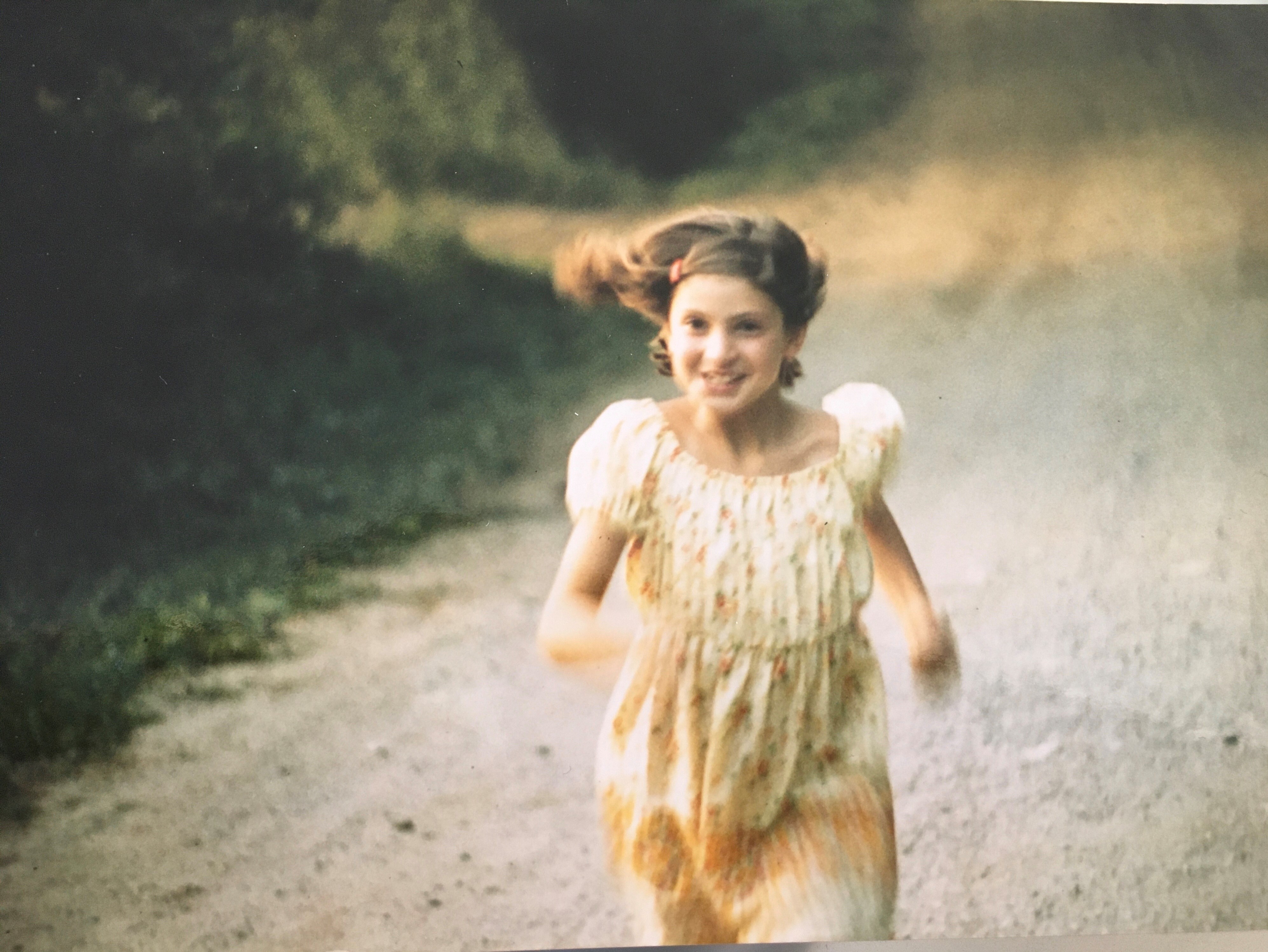
How are music and/or creativity part of your life now?
I think that sense of the exploration being as important as where you arrive. Uncertain space can be very creative space. I’m always looking for interconnections among different mediums and ways of thinking. I’m in the process of planning a study of sleep in the Arctic. I’m collaborating with someone who has done a study of sleep in the Antarctic, as well as an oceanographer, and that spirit of collaboration was very much part of Walden. Studying things that are different and new relates to Walden, even though for me it’s in a field outside music. I think Walden helped me develop a sense of fearlessness. You have to try new things, and study what you want to study, whether or not it’s in vogue.
Music is with me all the time. I’m always listening to music and going to concerts and thinking about music. I’m married to Steve Coxe, who was also at Walden and is a composer. Our daughter Alice is 15, and she also loves music. She is a percussionist and really likes the melodic percussion instruments.
Are there other things you carry from Walden?
I think Walden has given me an appreciation for listening to people and not getting in the way of what they’re endeavoring to do. You provide them with information that might be able to assist them, but you don’t push them toward any particular thing. You never know what interrelationships will form or what they will mean. Everything is open, and unknown, and it’s an adventure, and that’s a spirit I found at Walden in those early years. It was just about being and learning, without constraints. I try to recreate that kind of environment for the students I teach and in research. I don’t always do it consciously, but these memories from Walden are part of me, and I want to recreate the endless possibility of that time.
You’d awaken and go to sleep with the sense of promise and beauty of each day at Walden, and the spirit of community. Once you experience this, it’s hard not to have in other settings, because you know what’s possible. It was very magical. I use that term sparingly, but it really was.
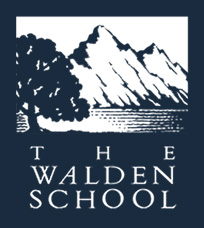
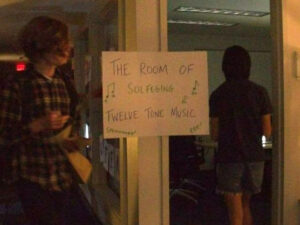
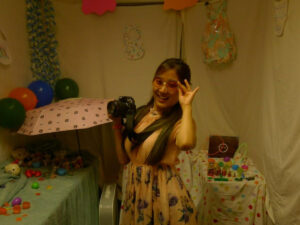
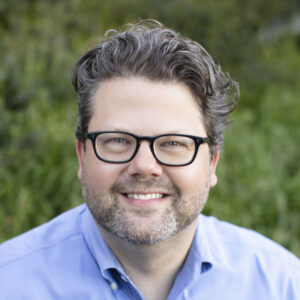


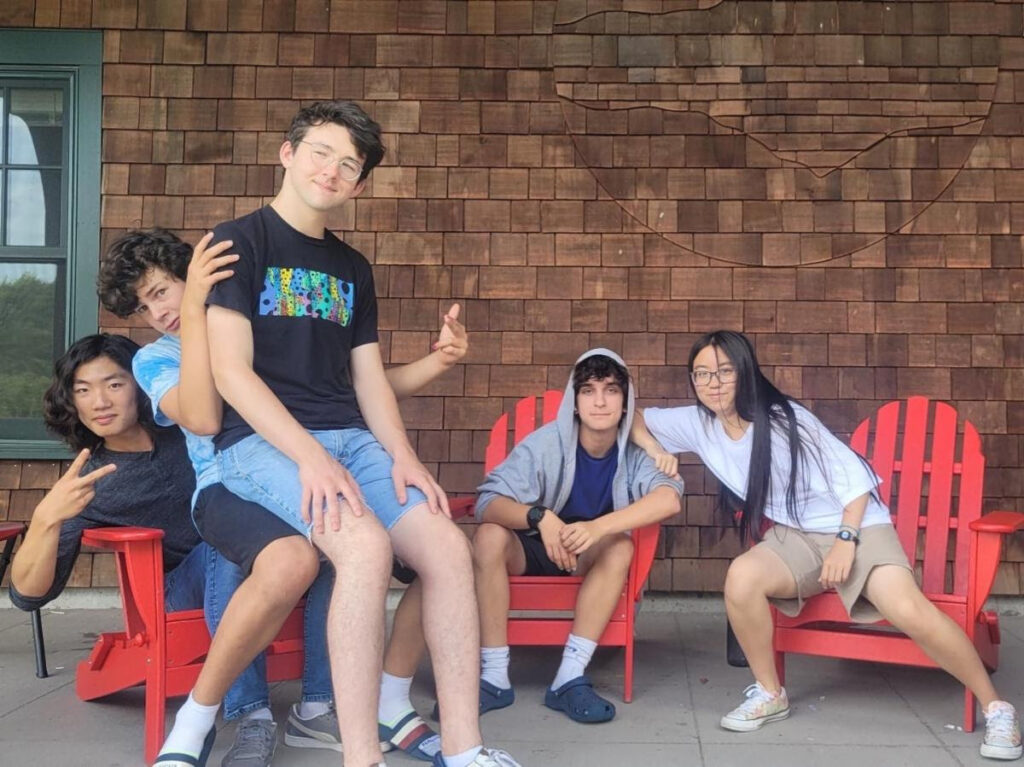
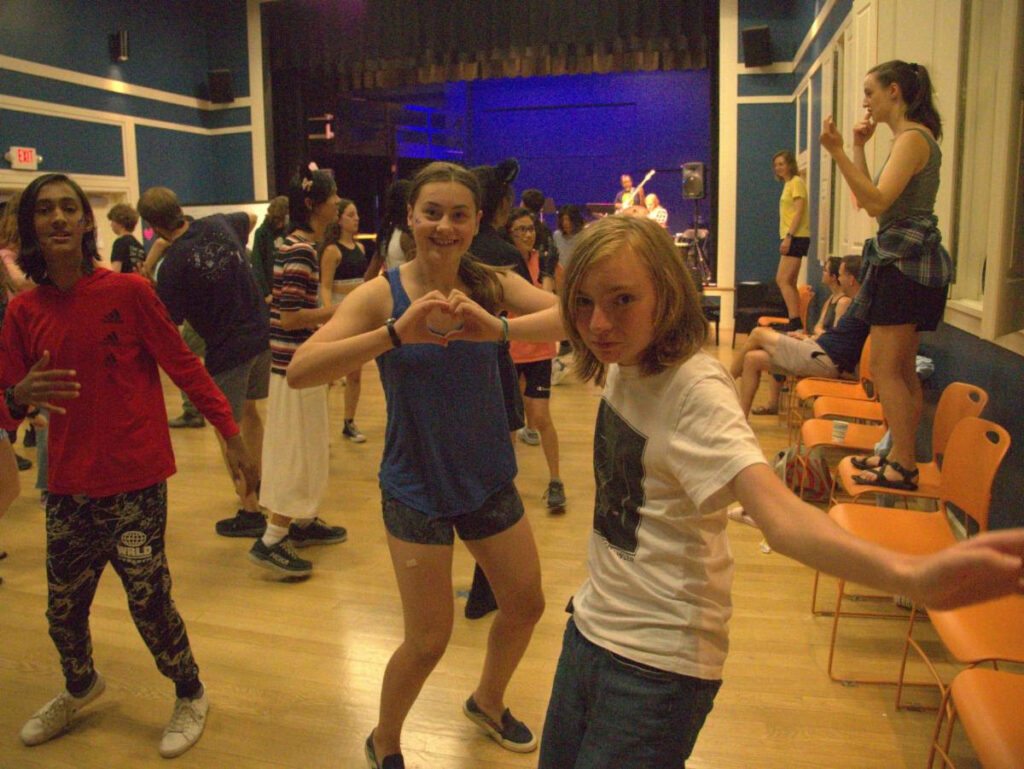
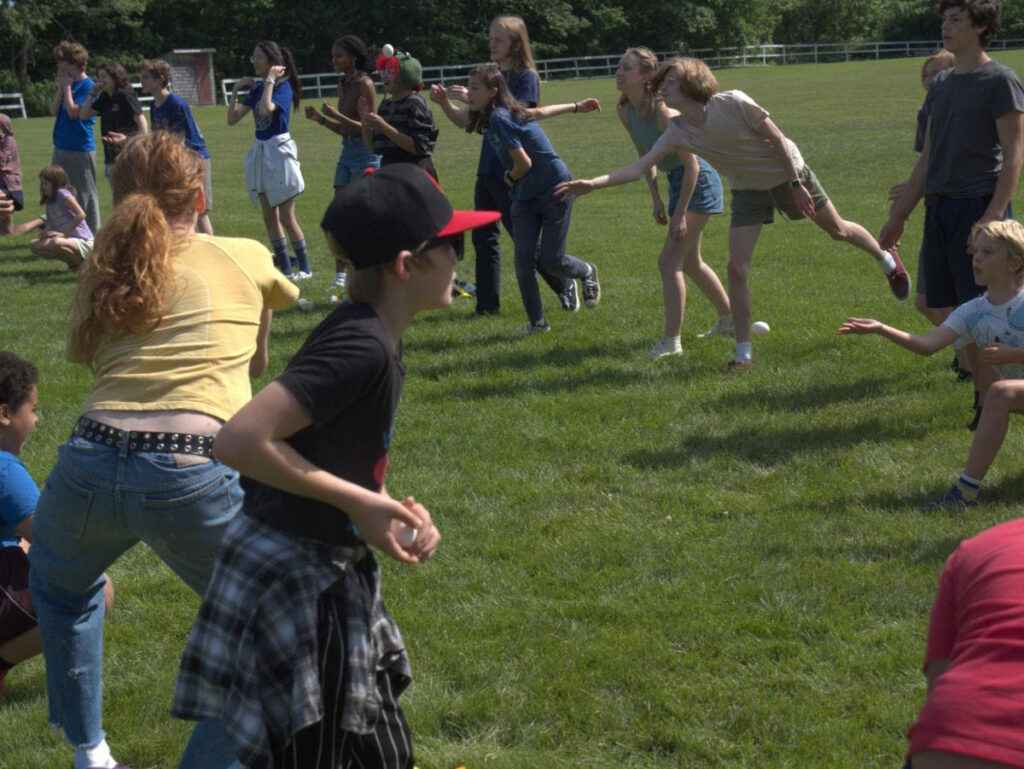
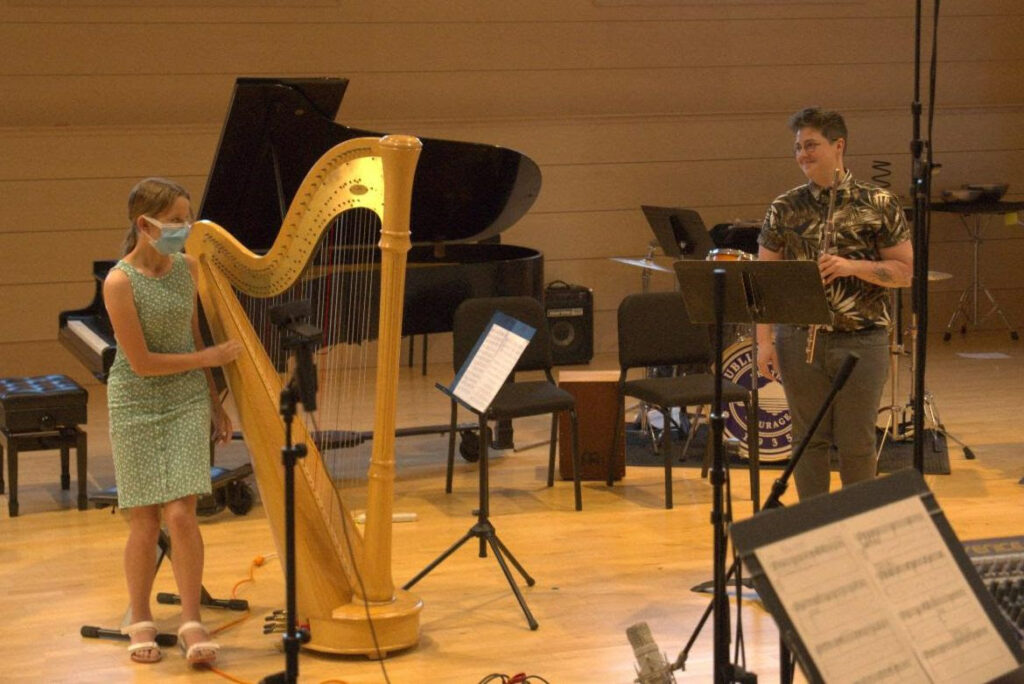

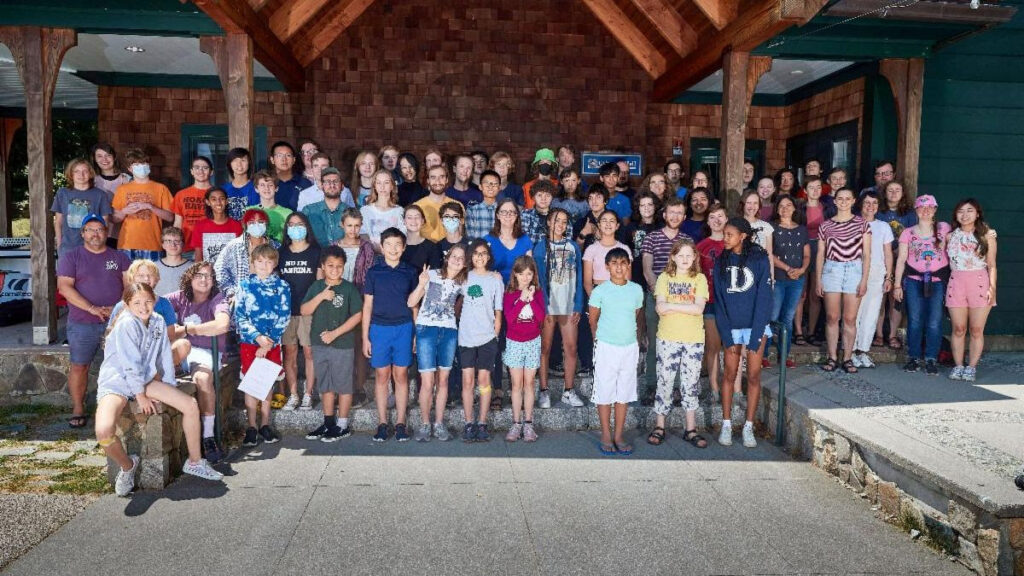
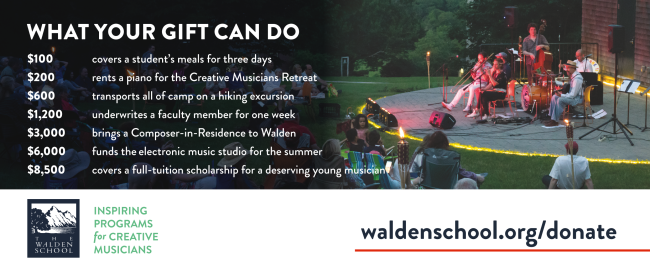
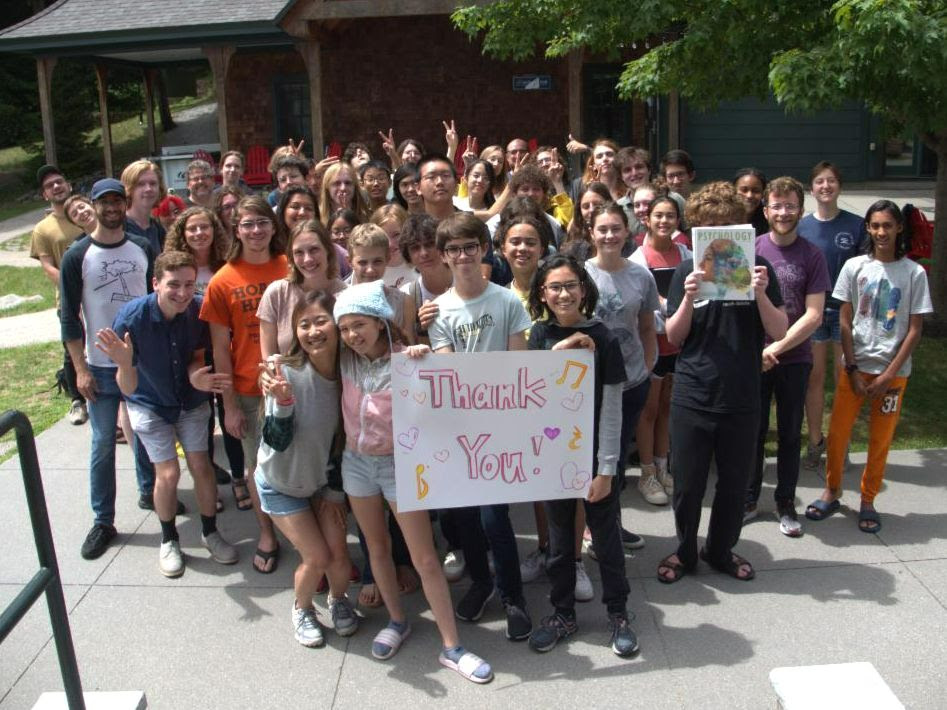
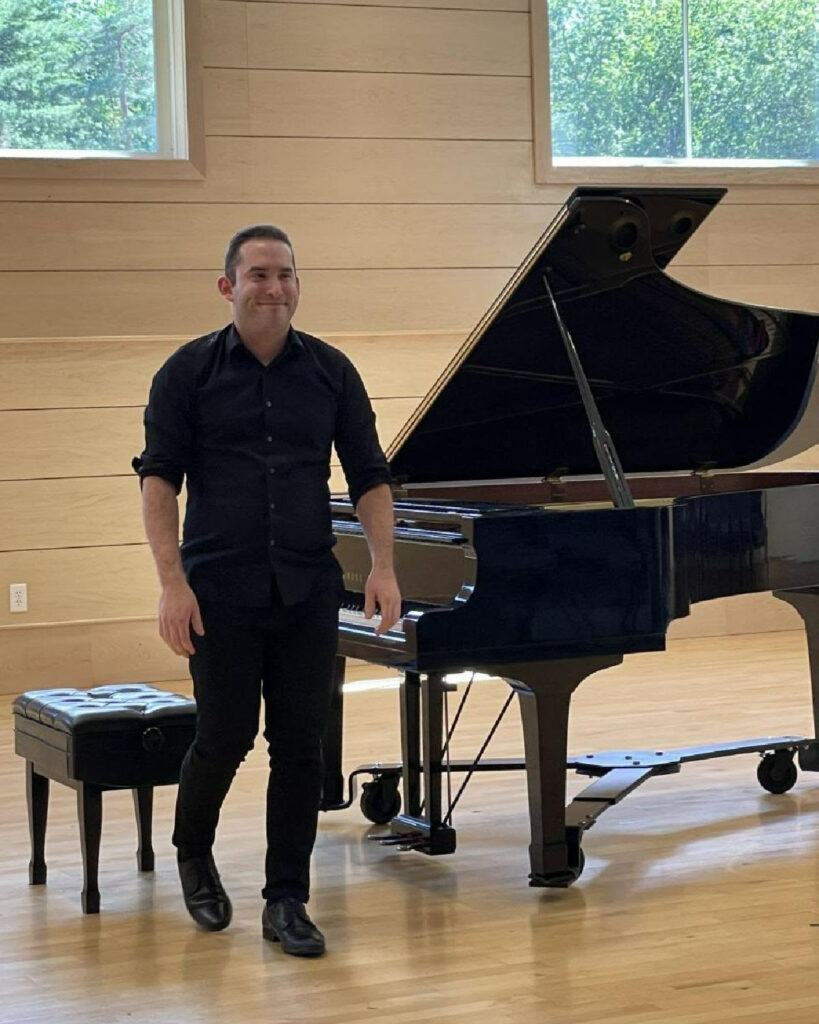
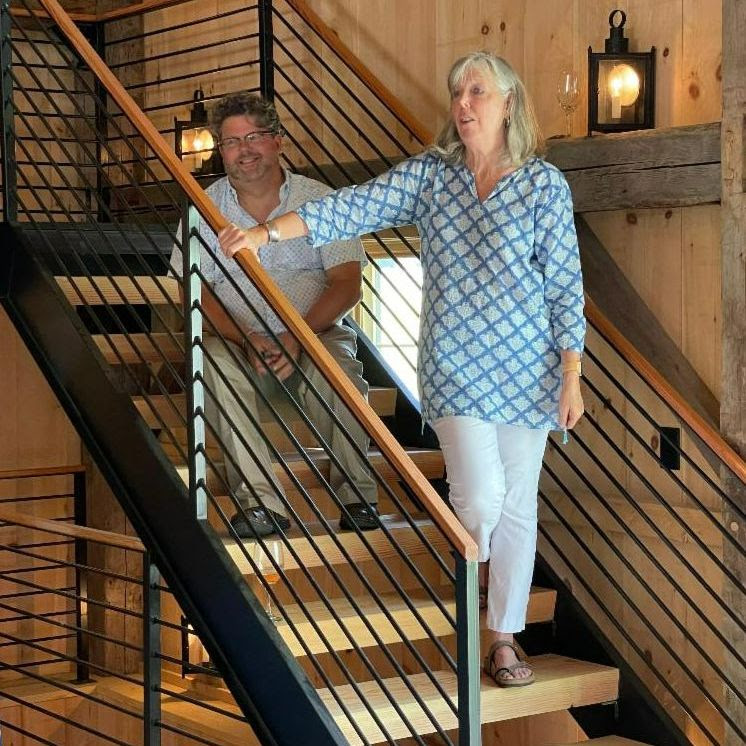
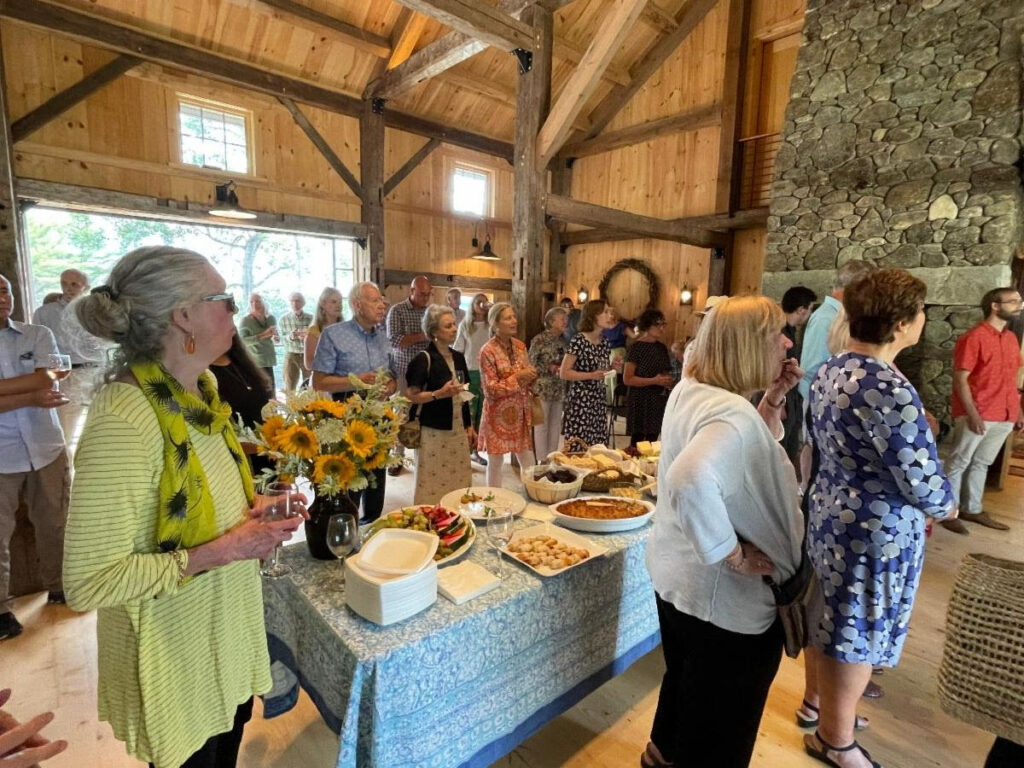
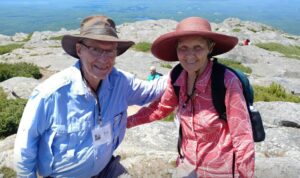

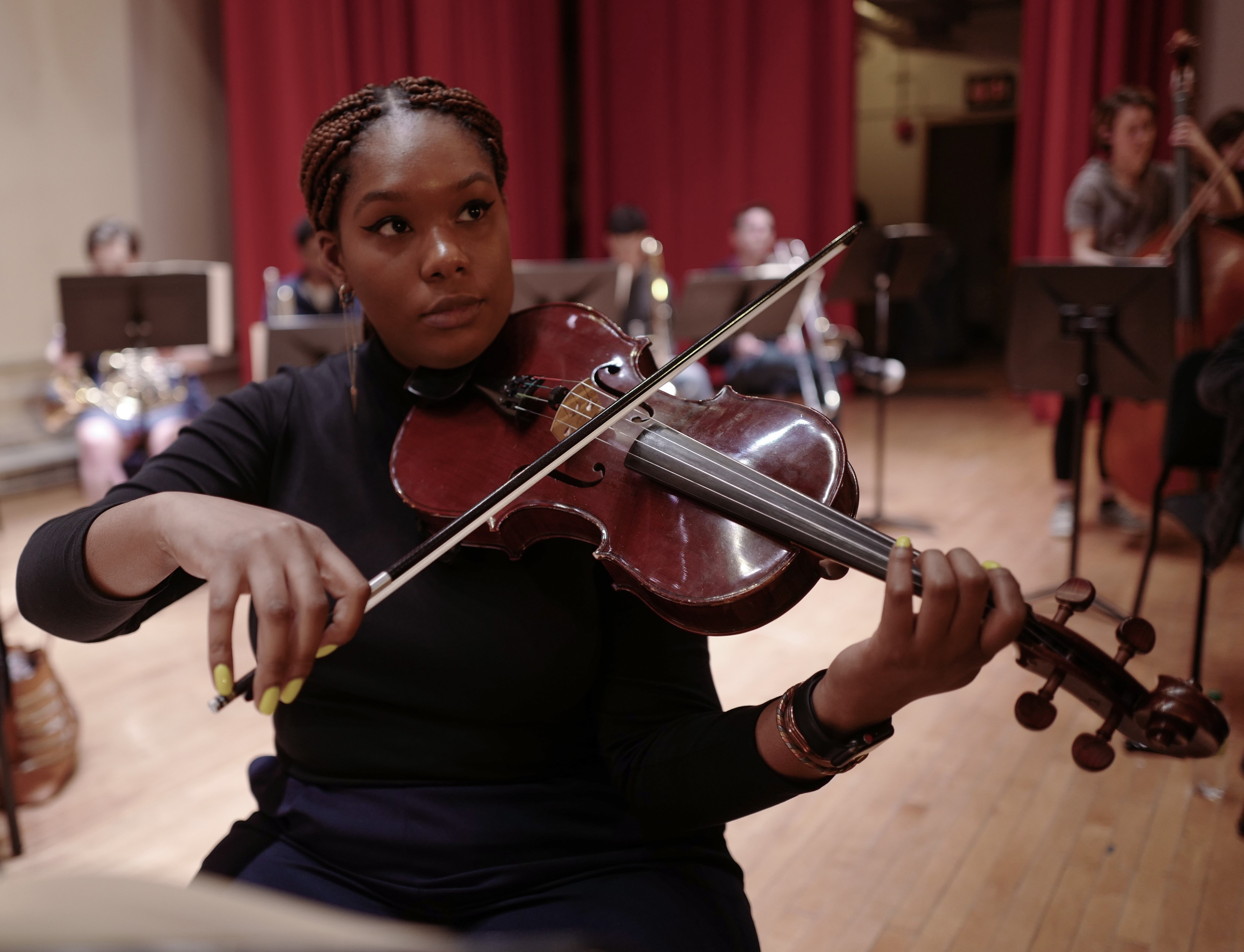 Amirah Stewart
Amirah Stewart